Natural Sciences
MakCoNAS Promotes Science Education in Schools through Astronomy
Published
9 months agoon
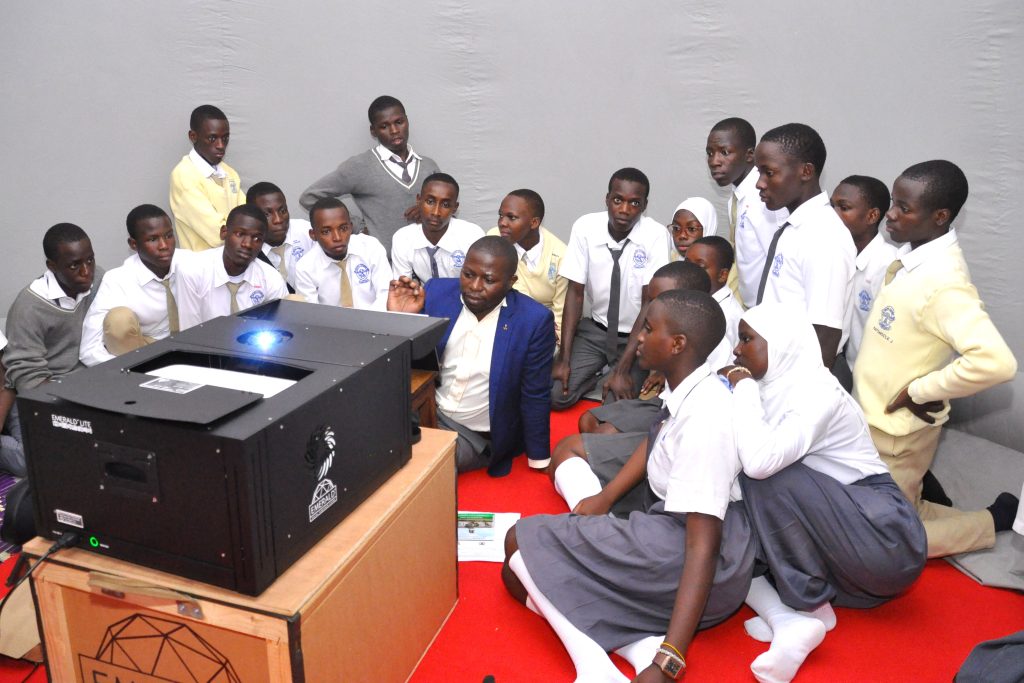
Overview
The Ugandan government has increasingly recognized the critical role of science education in driving the nation’s economic development. As such, it has put in place deliberate policies aimed at popularizing science education in schools. This initiative seeks to equip the youth with the knowledge and skills necessary to contribute effectively to the country’s development. Since 2004, science education has been made compulsory in lower secondary schools, and the Uganda Government has continuously emphasized the importance of science and technology through policies like the National Science, Technology, and Innovation (STI) Policy, introduced in 2009. These policies aim to create a strong foundation for the country’s “Transformation for Prosperity,” focusing on technological innovation and development. The introduction of astronomy and space science as part of the curriculum supports this vision, offering students the tools to explore scientific concepts that will drive future innovation.
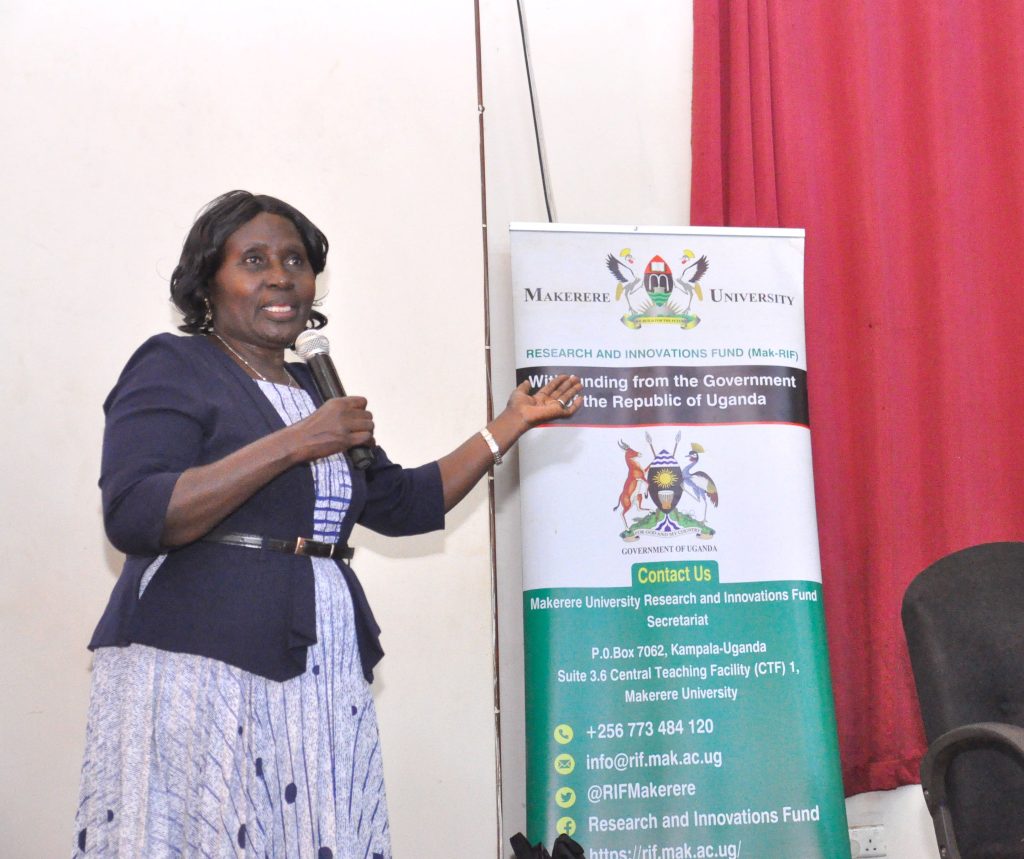
About the Project – Use of Astronomy and Space Science to Promote Science Education in Schools
In an initiative geared towards bolstering science education in Uganda, Makerere University Department of Physics is leveraging the wonders of astronomy and space science to ignite curiosity and enthusiasm among learners. The project, led by Prof. Florence Mutonyi D’ujanga from the Department of Physics has reached 10 schools in Kampala, Luwero, and Mukono districts, using the vast universe to inspire the next generation of scientists, engineers, and mathematicians. The astronomy outreach activities have impacted numerous schools across different regions in Uganda. The initiative started during the COVID-19 lockdown, with initial outreach to nearby schools in Kampala. As the programme gained momentum, it expanded to various districts, benefiting students from both primary and secondary levels. The schools that have participated in the programme include, Kampala: Makerere College School and Makerere CoU Primary School, Luwero: Mulusa Academy (Wobulenzi), Wobulenzi Bright Parents, Janan Luwum S.S., and Janan Luwum Nursery & P/S, MUkono: Our Lady of Africa S.S., Kyesereka CoU P/S, Mpoma Royal College, and Mpoma Junior School.
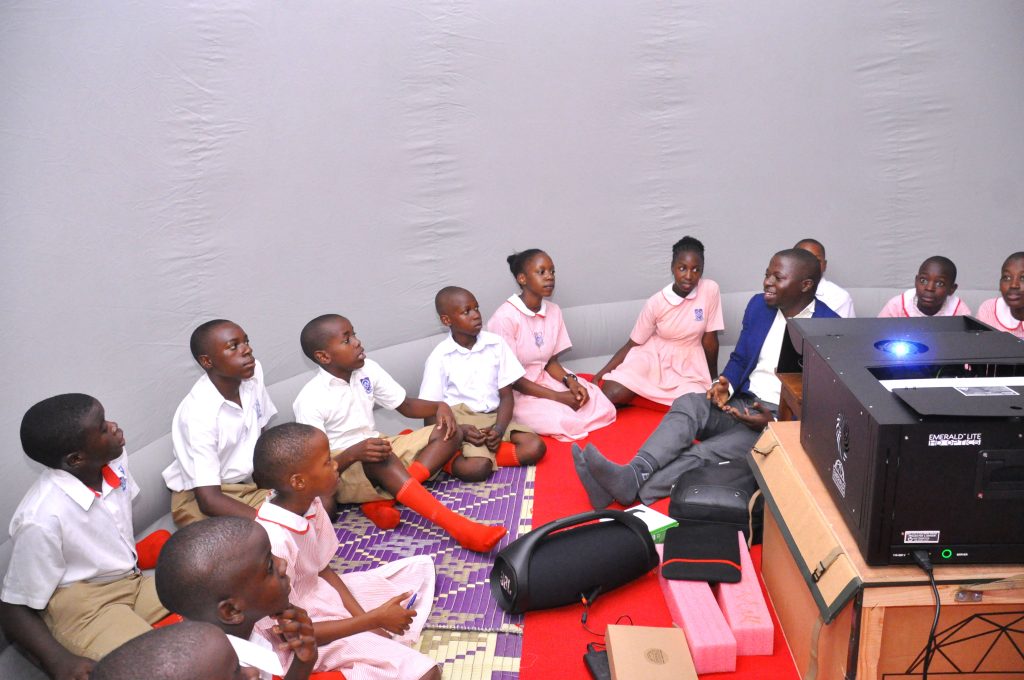
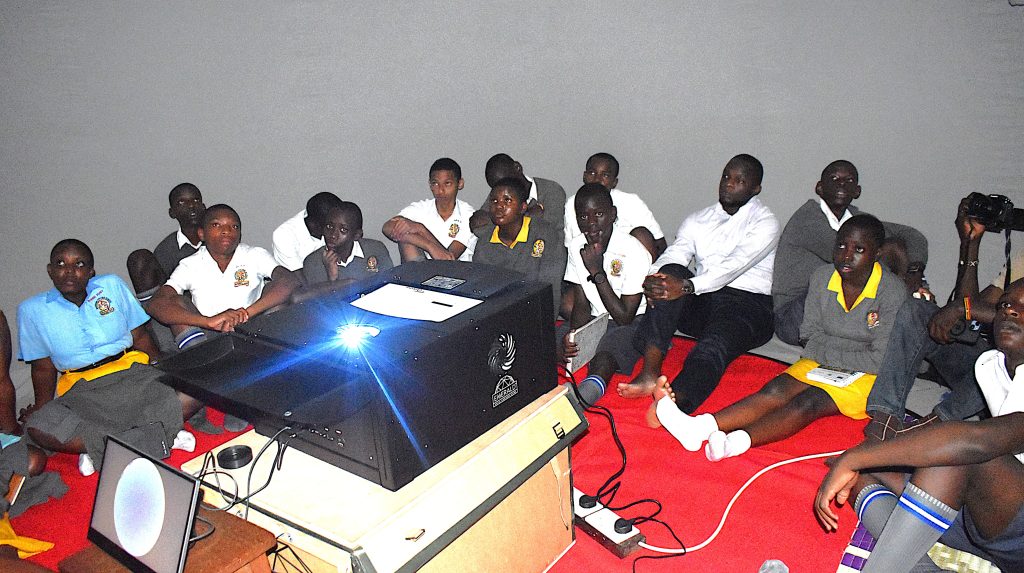
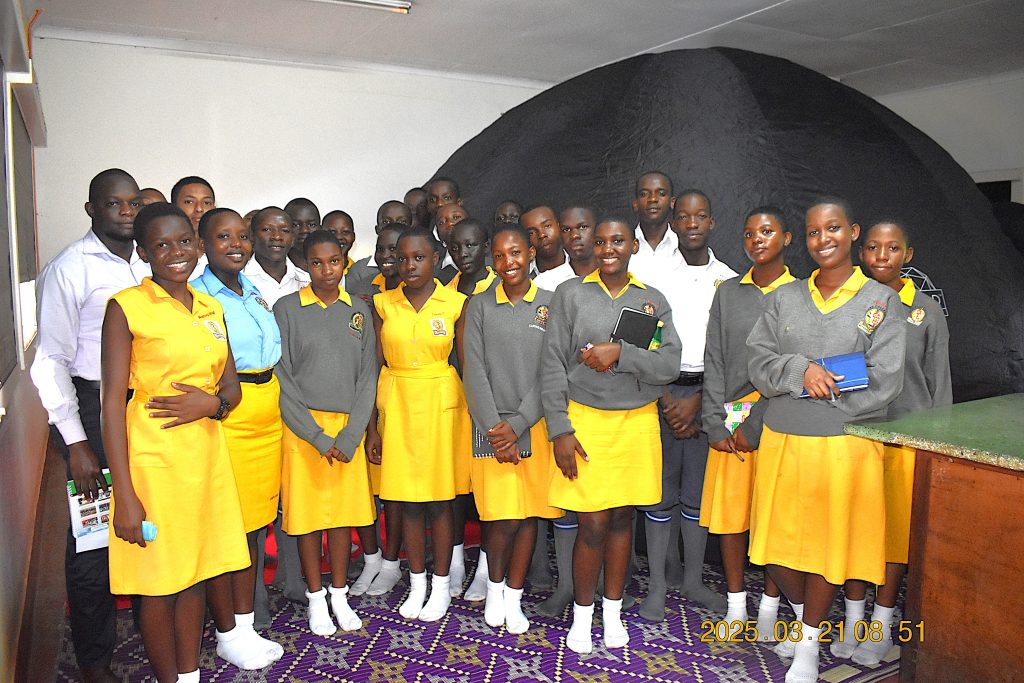
Aims and Objectives of the Project
Funded by the Government of Uganda through the Makerere University Research and Innovations Fund (MakRIF), the central aim of this initiative was to use astronomy and space science to capture the imagination of students, encouraging them to embrace the study of science and mathematics. “By engaging students in hands-on, interactive learning activities, the project seeks to improve their performance in these critical subjects. The initiative focuses on making science enjoyable, accessible, and inspiring, fostering a positive attitude toward the subject from an early age,” explained Prof. D’ujanga.
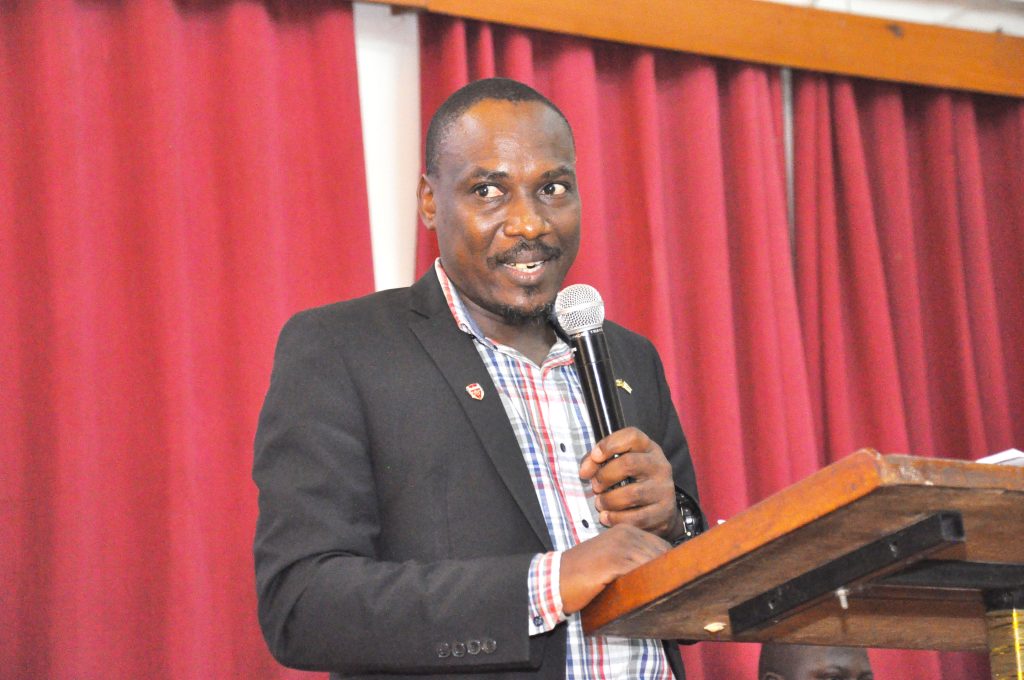
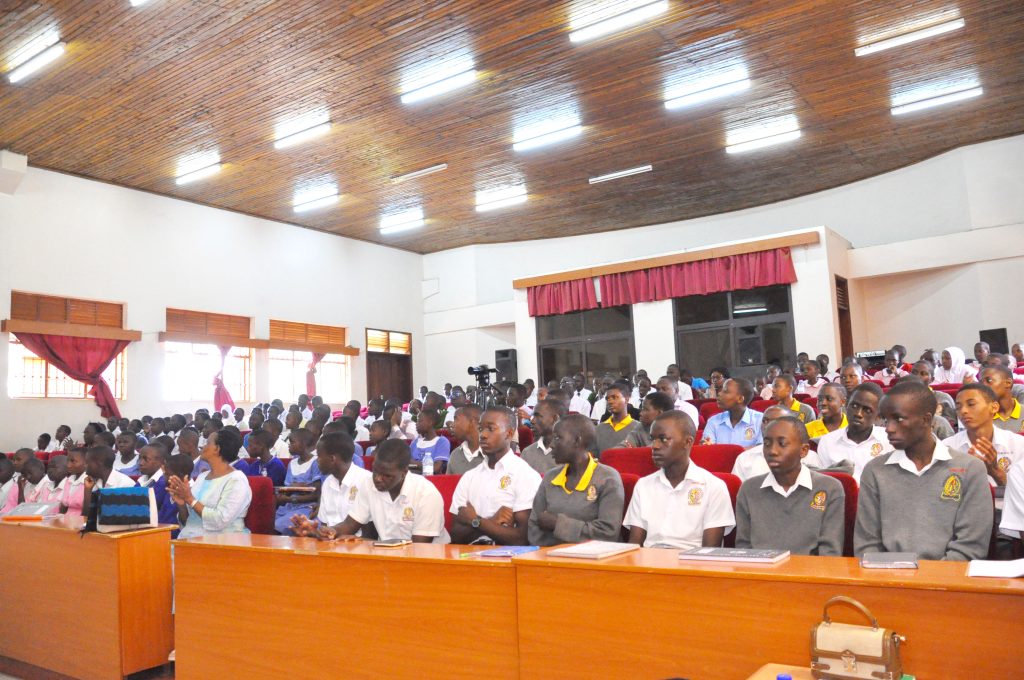
Activities conducted
The project began with a questionnaire to assess the students’ initial understanding of astronomy, followed by tailored outreach activities that addressed gaps in knowledge and sparked excitement about the subject. The activities included;
- Telescope Assembly: Students learned to assemble telescopes using local materials, helping them gain a hands-on understanding of how astronomy tools function.
- Sky Viewing: Students had the opportunity to observe celestial bodies like stars, planets, and constellations, experiencing the universe up close.
- Cultural Astronomy Storytelling: This component introduced students to the rich cultural narratives surrounding astronomy, linking science with history and tradition.
- Astronomy Quiz Sessions: Fun, educational quizzes challenged students’ knowledge of astronomy, stimulating a deeper interest in the subject.
- Planetarium Shows: The project also featured immersive planetarium shows, which are a highlight for many students. These shows provided an exciting visual experience, where learners could see projections of stars, planets, and other celestial phenomena. The planetarium is at the heart of this outreach programme. Traditionally used for educational purposes in the field of astronomy, the planetarium has a hemispheric domed ceiling, which serves as a projection screen for images of celestial objects. The immersive environment fosters curiosity and excitement among learners, laying a solid foundation for further study in science. One of the main objectives of the planetarium shows is to break down the myth that sciences are difficult. By using visual and interactive methods, the project demonstrates that learning about space and the universe can be both fun and inspiring.
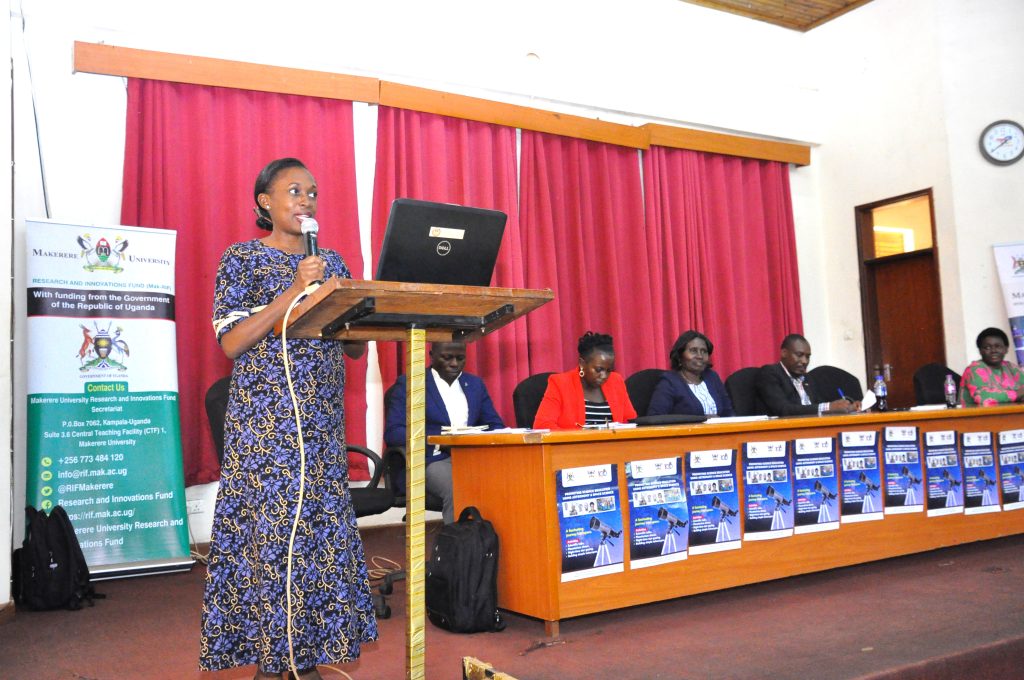
Project research dissemination event
On 21st March 2025, the project team hosted a dissemination event at Makerere University to present and share their research findings. The event was presided over by Prof. Winston Tumps Ireeta, the Principal of the College of Natural Sciences (CoNAS) and Acting Deputy Vice Chancellor in charge of Finance and Administration at Makerere University. The event was attended by students, school administrators, as well as representatives from MakRIF and the Ministry of Science, Technology, and Innovation. In her address, the Project Principal Investigator (PI), Prof. Florence D’ujanga, emphasized the importance of sparking curiosity in students to encourage them to pursue scientific studies. “By making astronomy and space science more accessible and engaging, this project seeks to inspire greater interest in science education, ultimately benefiting Uganda’s long-term development in critical fields such as technology, engineering, and mathematics,” she explained.
On behalf of MakRIF, Dr. Mercy Rebekah Amiyo expressed appreciation to the research team for their invaluable initiative in promoting the study of science through astronomy. Dr. Amiyo praised the team’s dedication to making complex scientific concepts more engaging. She called upon the project team to secure property rights and take proactive steps toward the commercialization of the project.
In his remarks, the Guest of Honour, Prof. Winston Tumps Ireeta emphasized the importance of nurturing scientists who understand principles rather than simply memorizing frameworks. He emphasized the importance of early exposure for children to develop an appreciation for science. He expressed gratitude to the Government of Uganda for its continued support towards research activities at Makerere University.
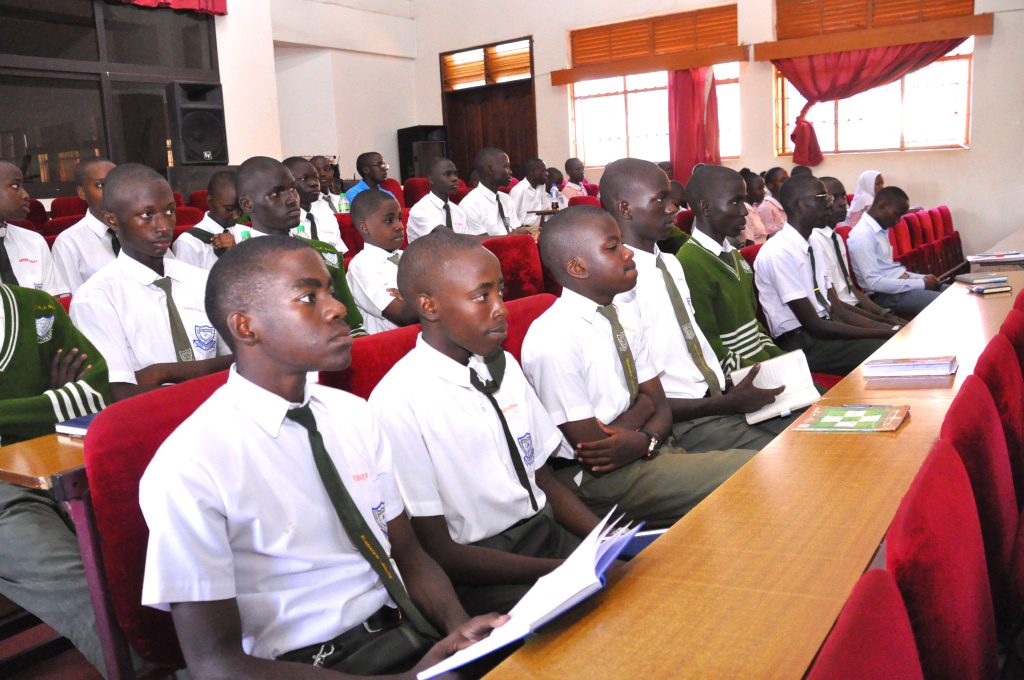
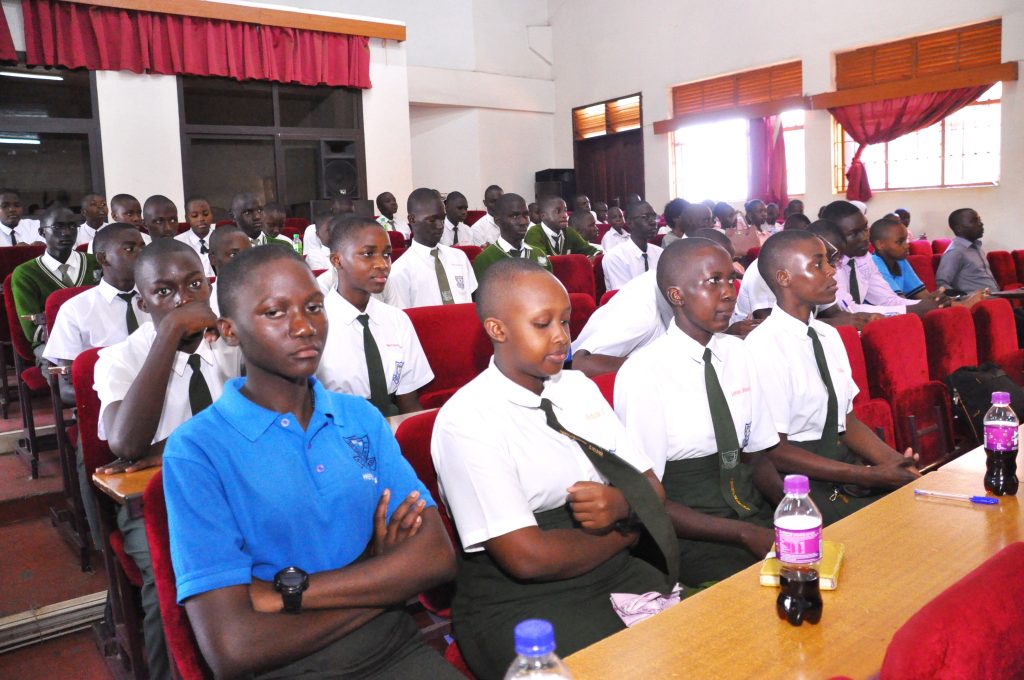
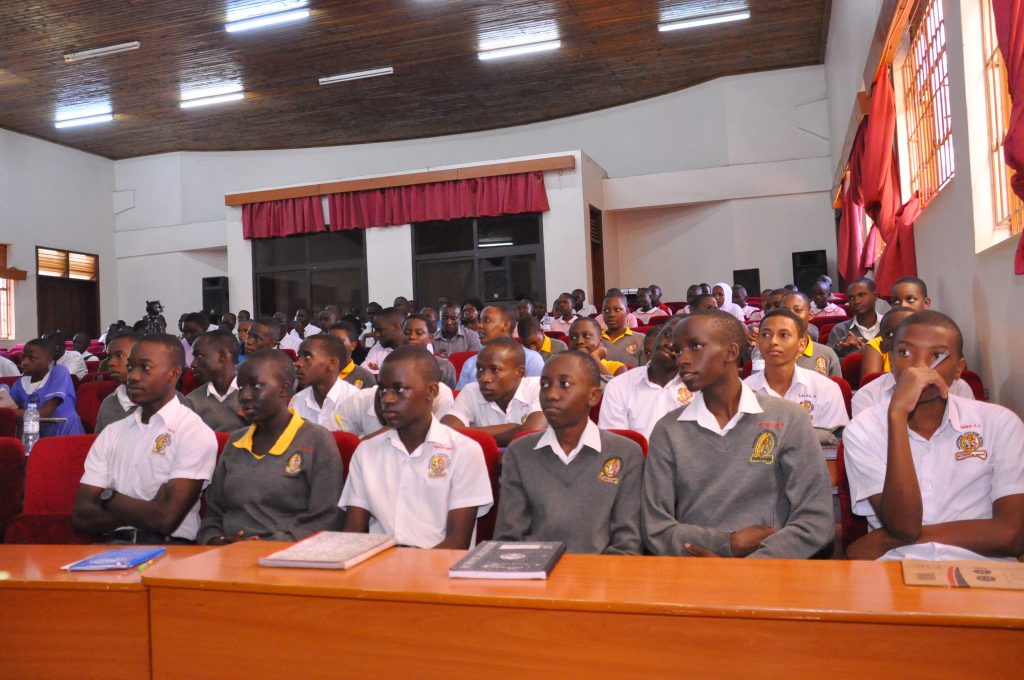
Testimonies by students
Sharing their testimonies about the project, Jonathan Mugabi and James Tanzinge, both S.4 students at Makerere College School, expressed heartfelt gratitude for the opportunity it provided. They noted that the project had ignited a newfound passion for research, significantly expanding their interest in exploring scientific topics. Through their participation, they were introduced to essential scientific vocabulary, which has helped to deepen their understanding of complex concepts. Additionally, the project exposed them to cutting-edge technology, fostering a sense of excitement and curiosity about the role of innovation in science. As a result, both students have developed a strong desire to continue their studies in the sciences at a higher level, inspired by the hands-on experiences and knowledge they gained from this initiative.
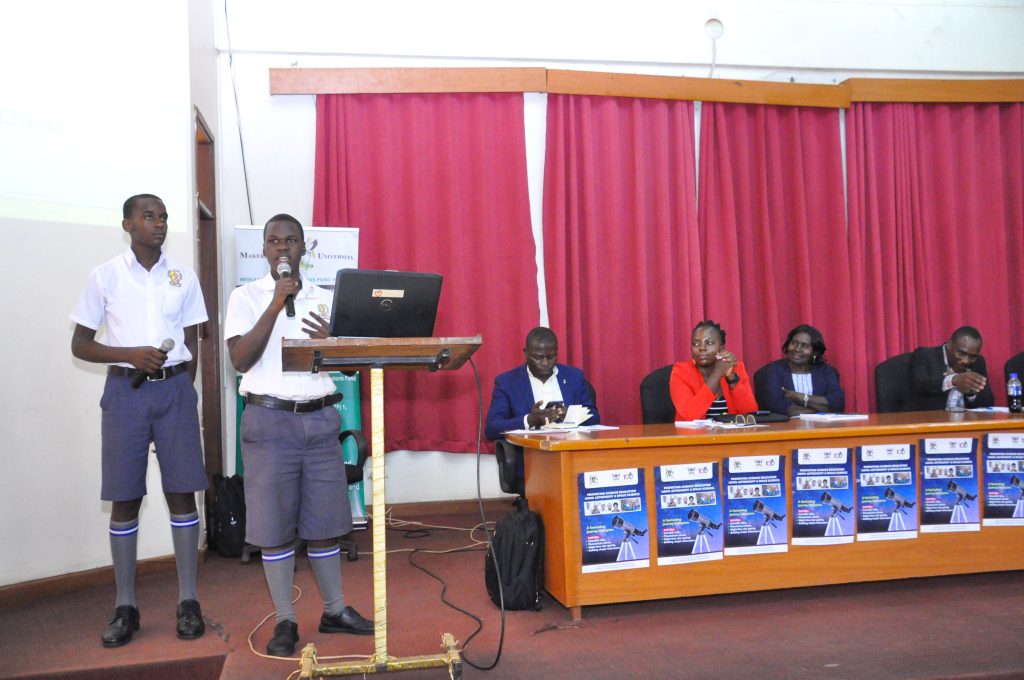
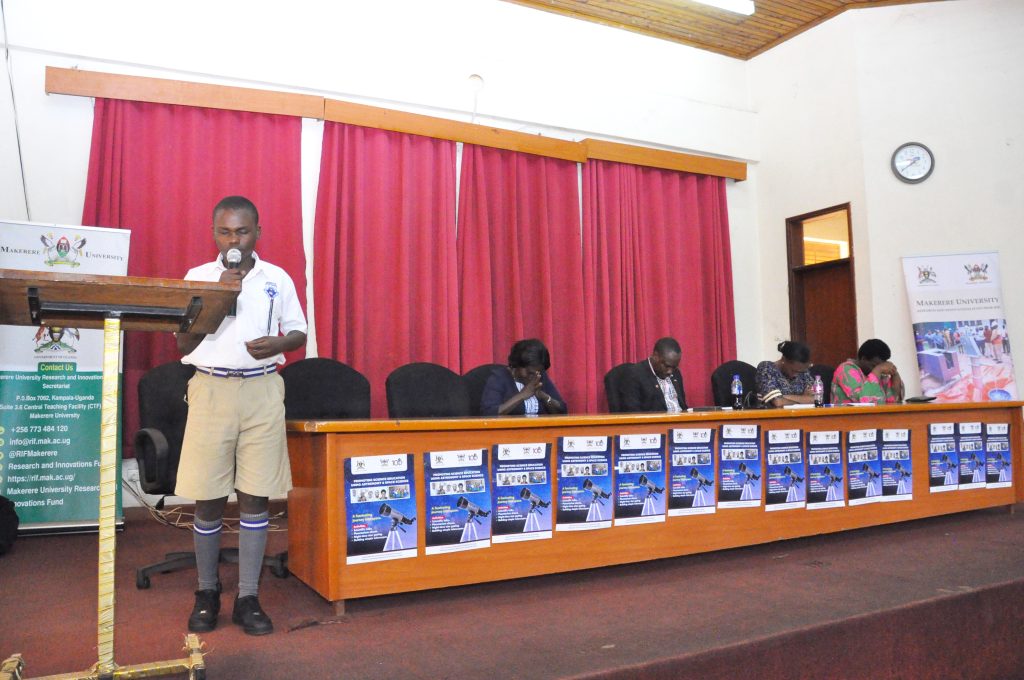
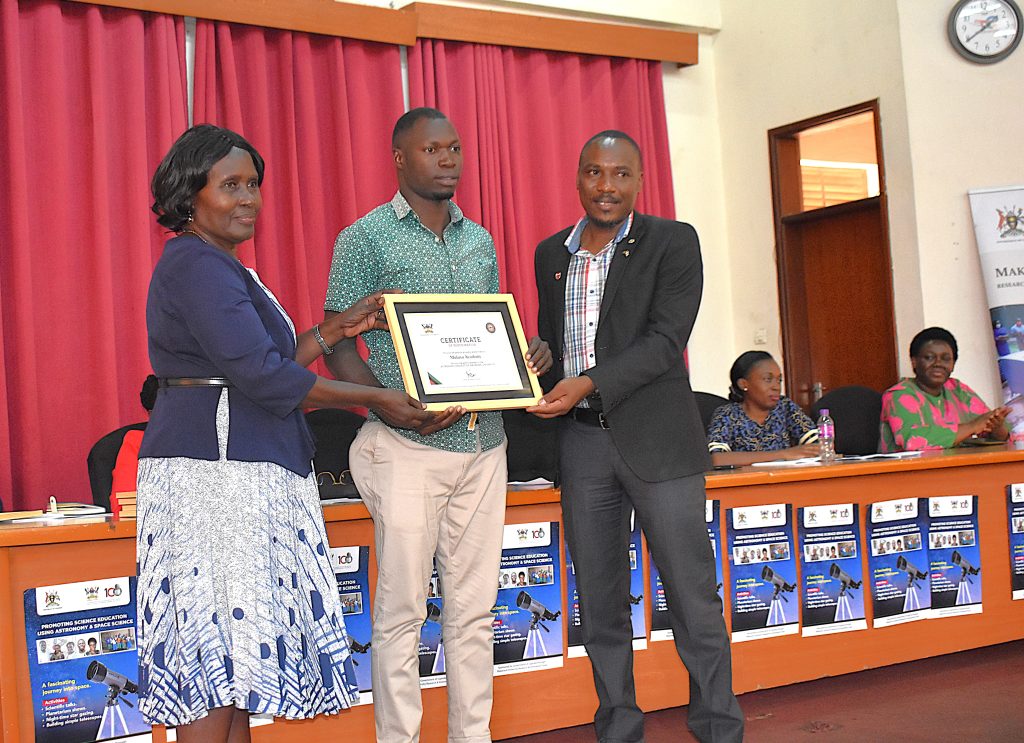
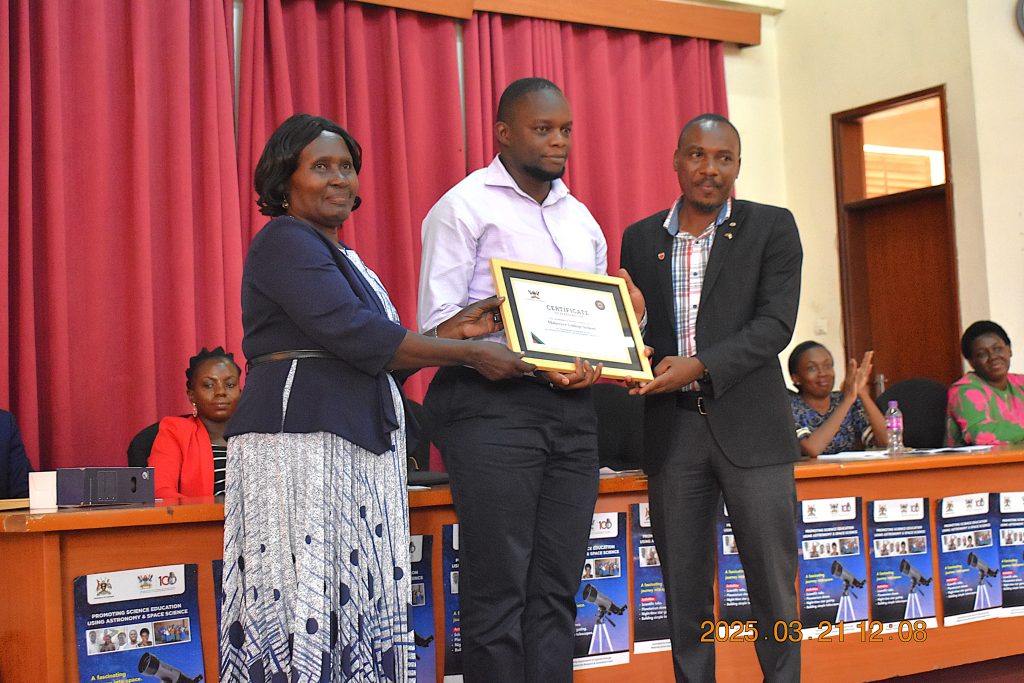
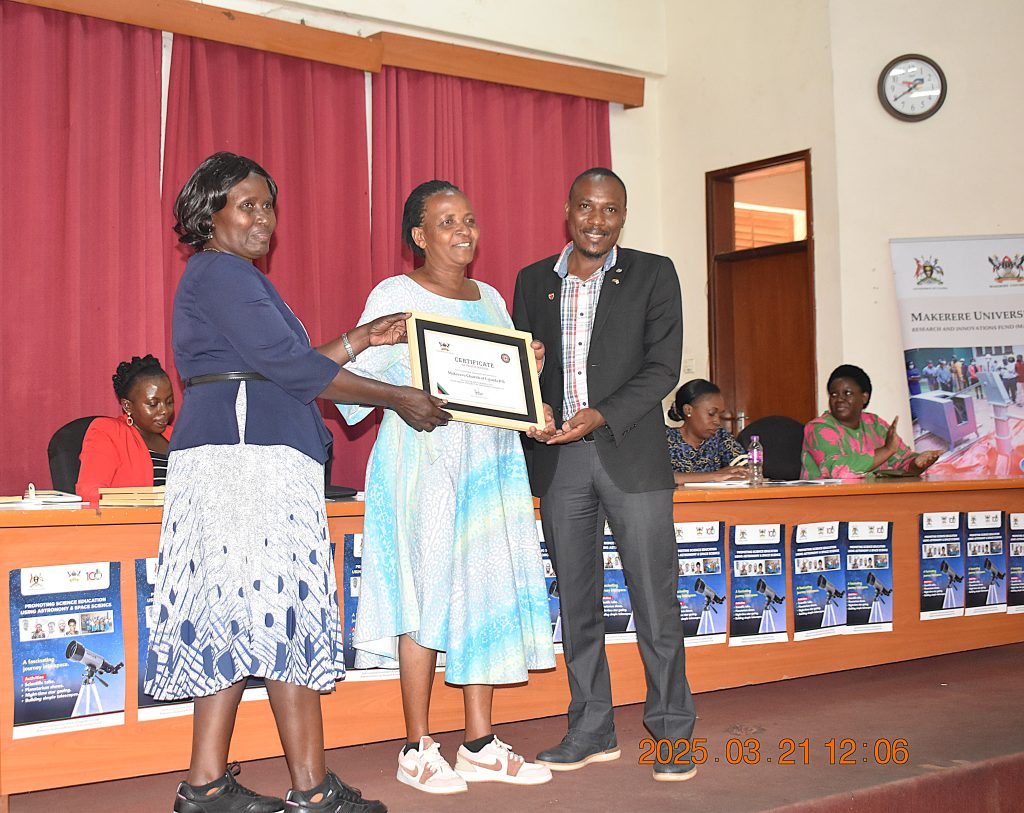
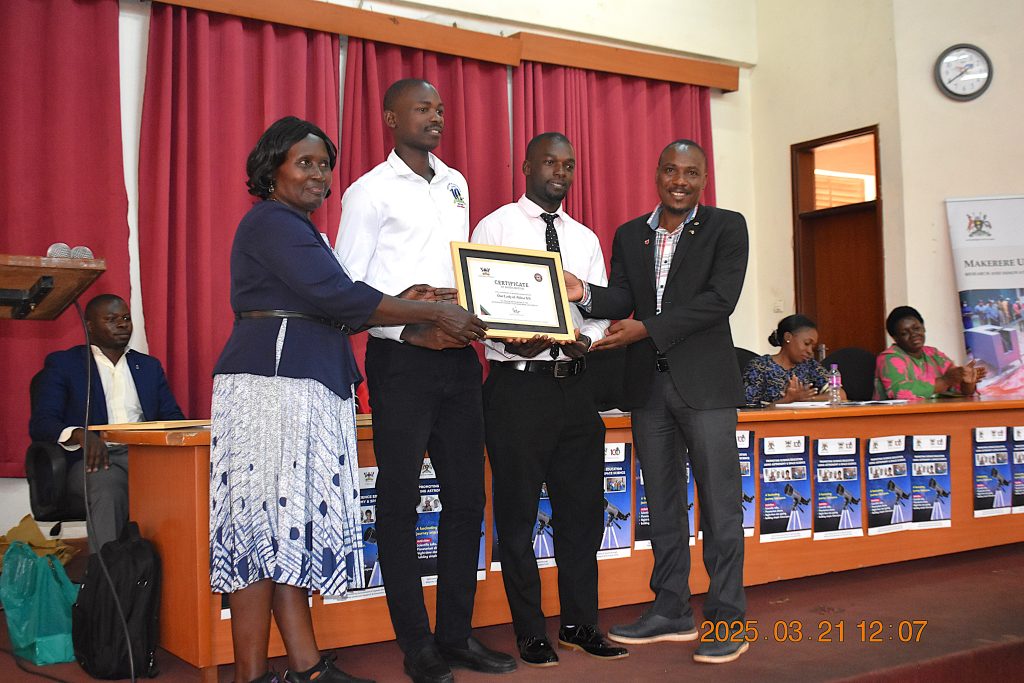
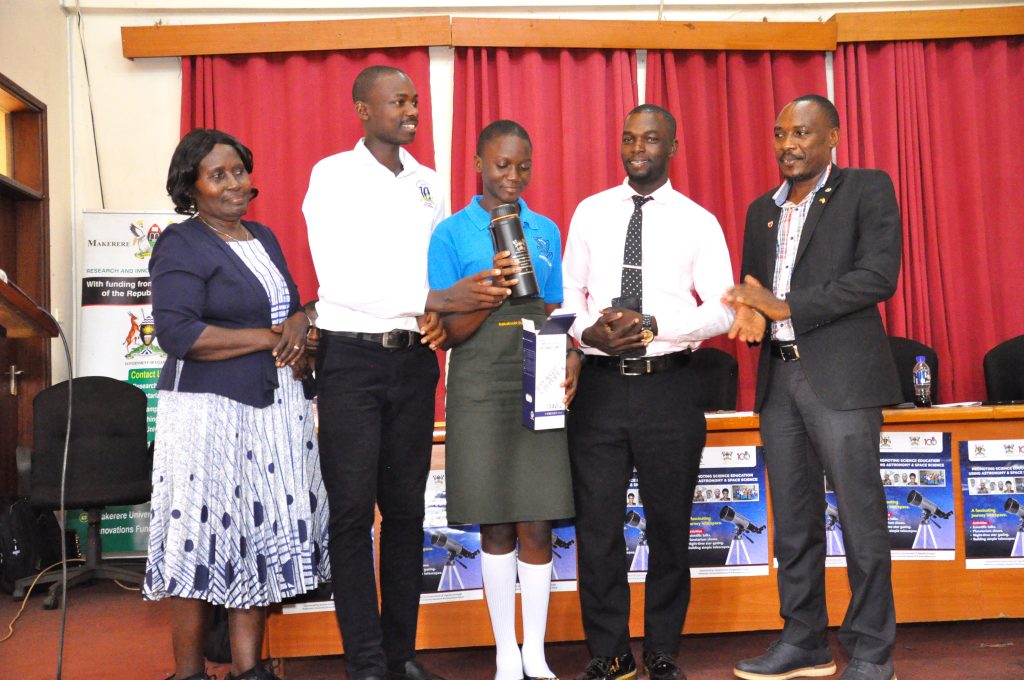
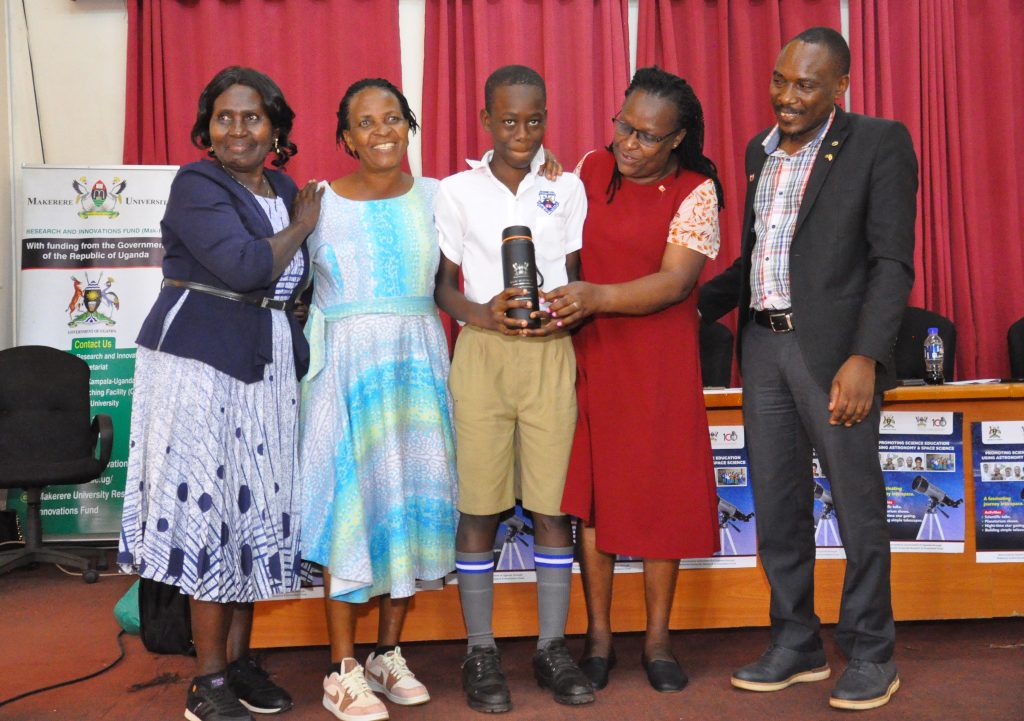
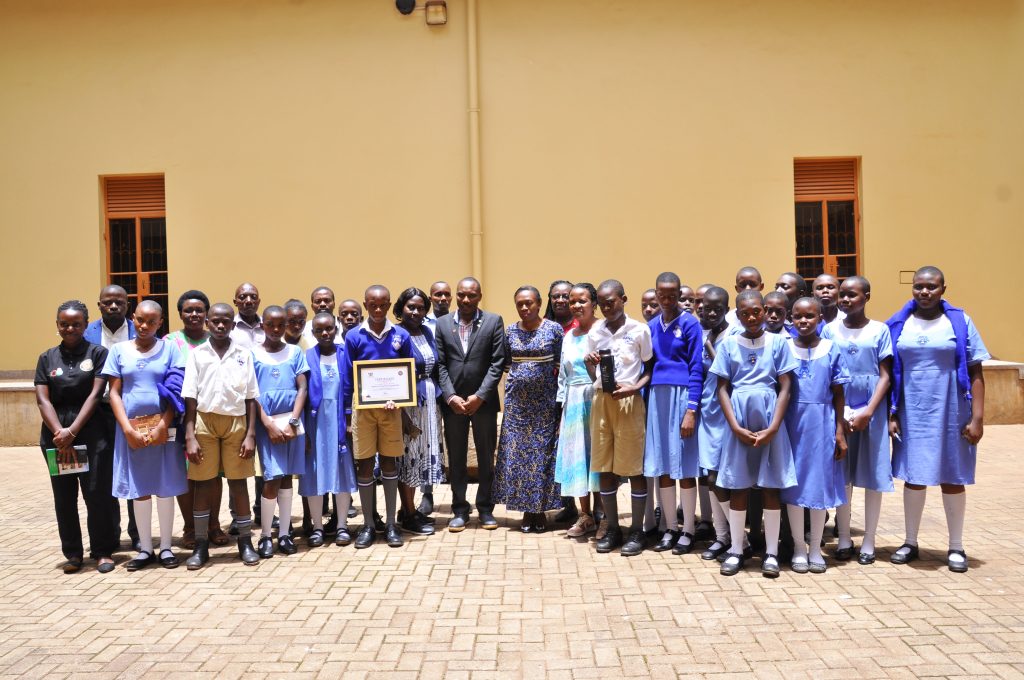
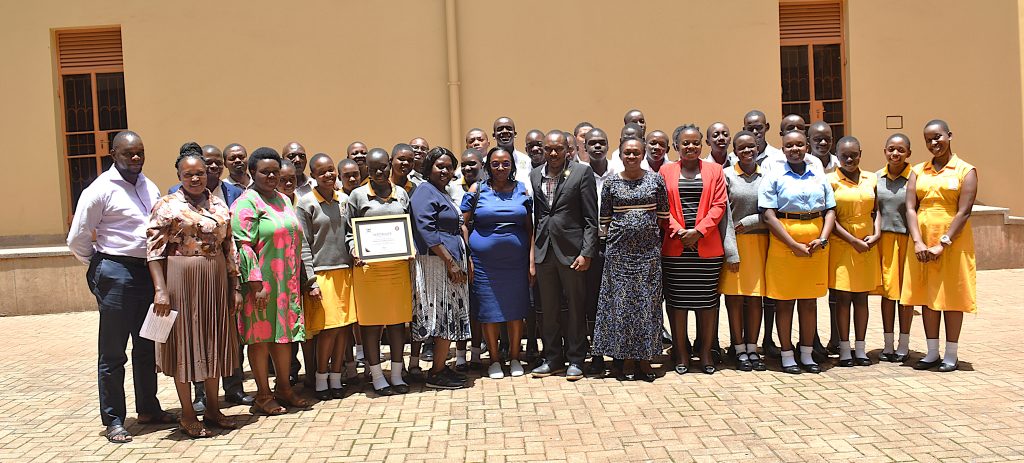
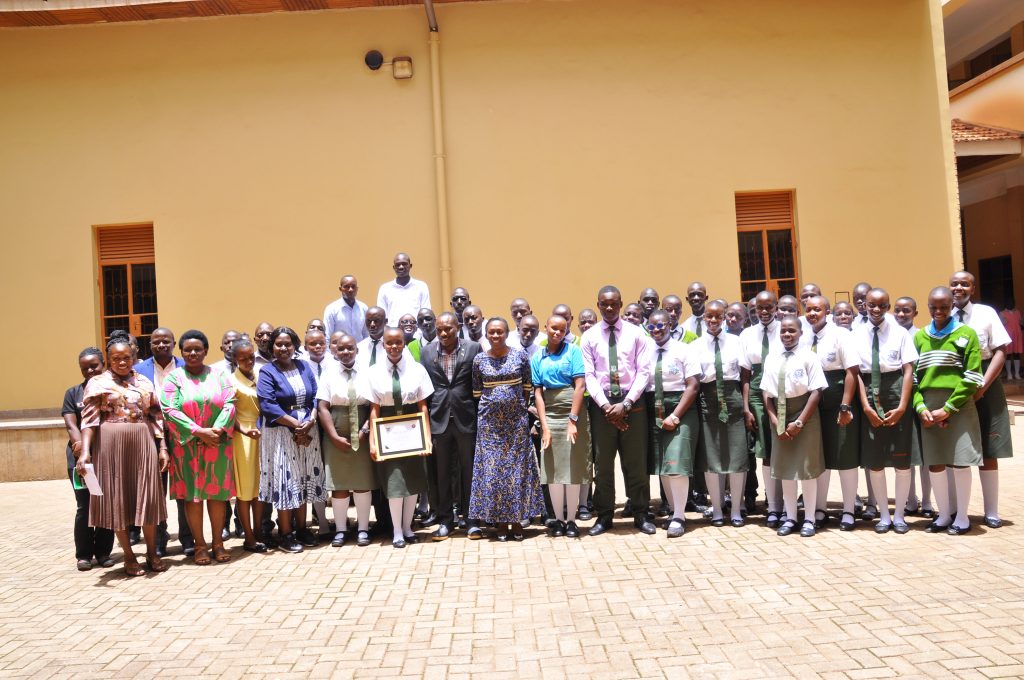
Click on the link below for the pictorial of the dissemination conference;
https://drive.google.com/drive/folders/1Wv5xLOwiNe8Tc9uOWBpt9xvOtwffLHdo?usp=sharing
You may like
-


Makerere University Explores Strategic Partnership with Tsinghua University in Safety Science, Disaster Resilience and Public Health
-


College of Humanities and Social Sciences Launches Five Groundbreaking Publications
-


JNLC-JICA Symposium advocates for Inclusive Governance: Amplifies debate on revisiting African-style Governance
-
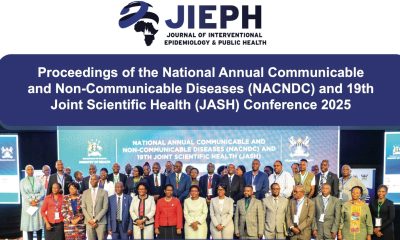

Proceedings of the National Annual Communicable and Non-Communicable Diseases and 19th Joint Scientific Health Conference 2025
-


Inside Uganda’s Silent AMR Crisis: Counterfeit Drugs, Antibiotic Overuse, and What Wakiso’s Evidence Reveals
-
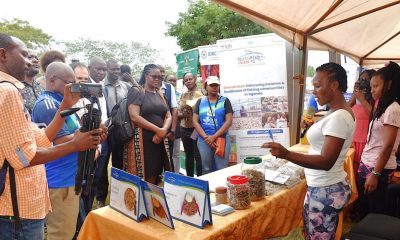

Jinja Fish Festival: Mak Recognized for its outstanding contribution to the Development of the Fisheries Sector
Natural Sciences
Jinja Fish Festival: Mak Recognized for its outstanding contribution to the Development of the Fisheries Sector
Published
2 weeks agoon
December 8, 2025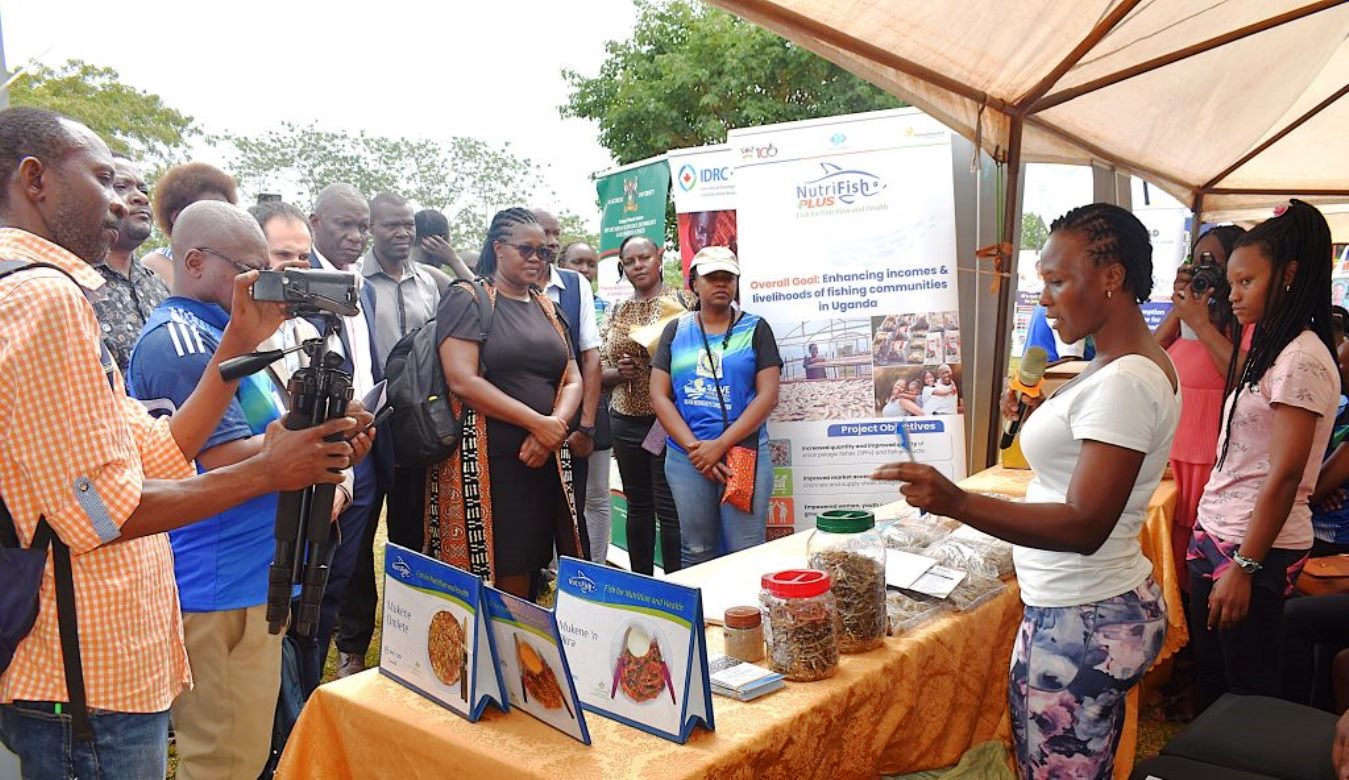
Makerere University, through the College of Natural Sciences (CoNAS), has been recognized for its outstanding contribution to the development of the fisheries sector in Uganda. The award was presented during the Sustainable Fisheries, Aquaculture, and Environmental Awards Ceremony at the 7th edition of the Jinja Fish Festival, held on 6th–7th December 2025 at Across the Nile Resort, along the banks of the River Nile in Njeru Municipality.
Renowned for showcasing diverse fish cuisines and cultural exhibitions, this year’s festival aimed to promote knowledge exchange, raise awareness, and highlight recent developments around Lake Victoria.
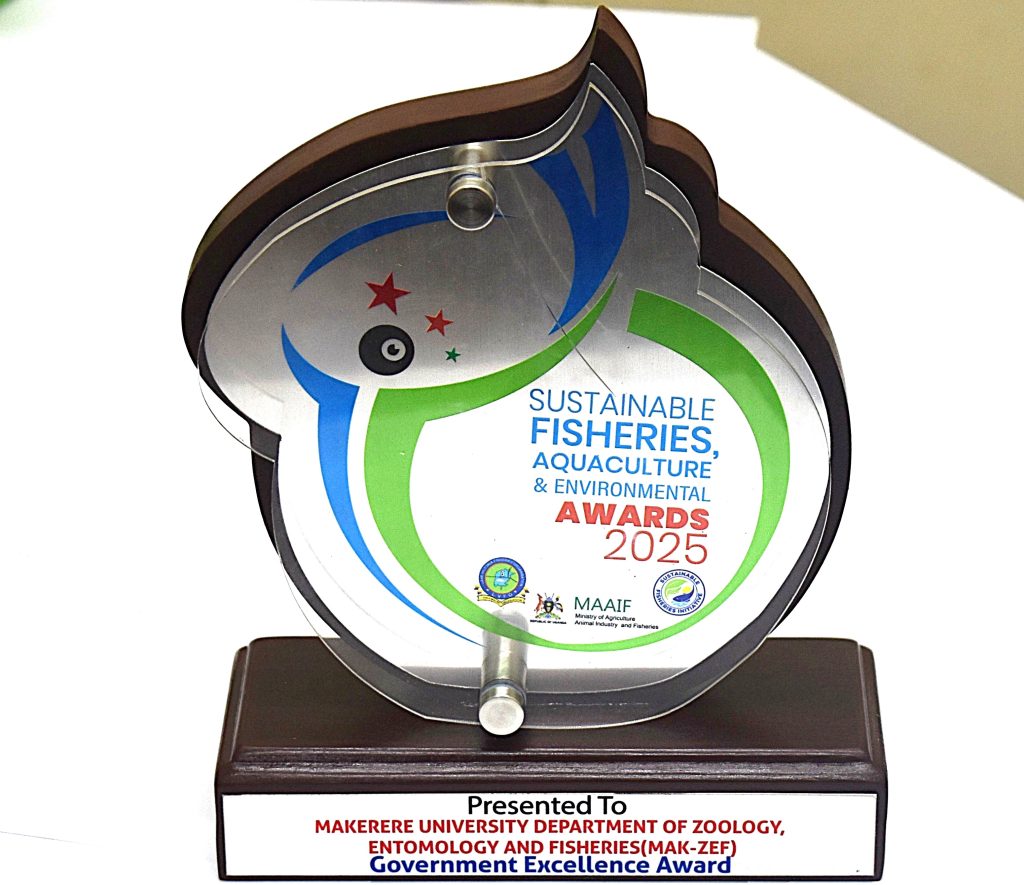
Launched in 2018, the Jinja Fish Festival has become a key platform for the public and stakeholders to learn about sustainable fisheries and the vital role of fish in livelihoods and nutrition. It also provides an avenue for fisheries stakeholders to deliberate on strategies to improve and sustain the sector.
The event includes the Lake Victoria Marathon, Nalubaale boat rowing competitions, a high-level fisheries forum, workshops, and exhibitions. It is organized by the Lake Victoria Fisheries Organization (LVFO) in partnership with the Directorate of Fisheries Resources, Sustainable Fisheries Initiative (SFI), Uganda Fish Processors and Exporters Association (UFPEA), and the International Fish and National Organizing Committee. It is funded by GIZ–SAF Project, the Food and Agriculture Organization (FAO), the International Fund for Agricultural Development (IFAD), and Enabel.
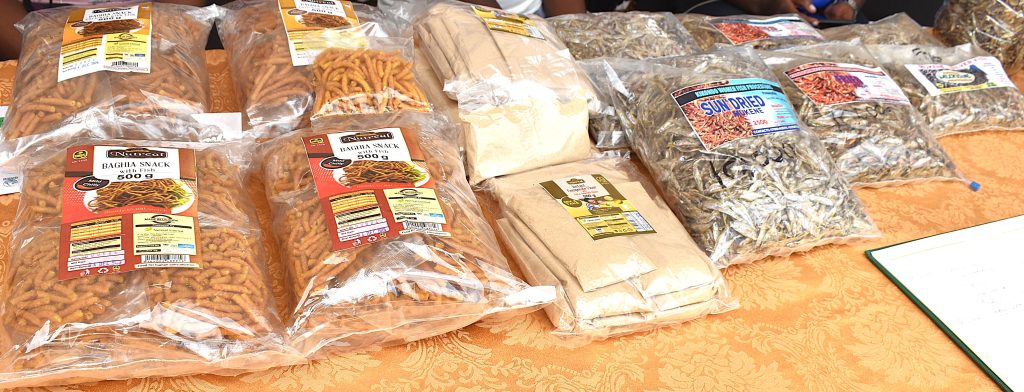
National Fisheries and Aquaculture Forum
A key highlight of the festival was the National Fisheries and Aquaculture Forum, themed “Promoting Sustainable Fisheries and Aquaculture through Ethical and Inclusive Blue Economy Practices.” The forum featured panel discussions on:
- Aligning Uganda’s Blue Economy with global and regional fisheries management frameworks.
- Adoption of climate-smart technologies in fisheries and aquaculture.
- Integration of business strategies and human rights principles into the fisheries and aquaculture value chain.
- Sustainable development of the fisheries and aquaculture sector.
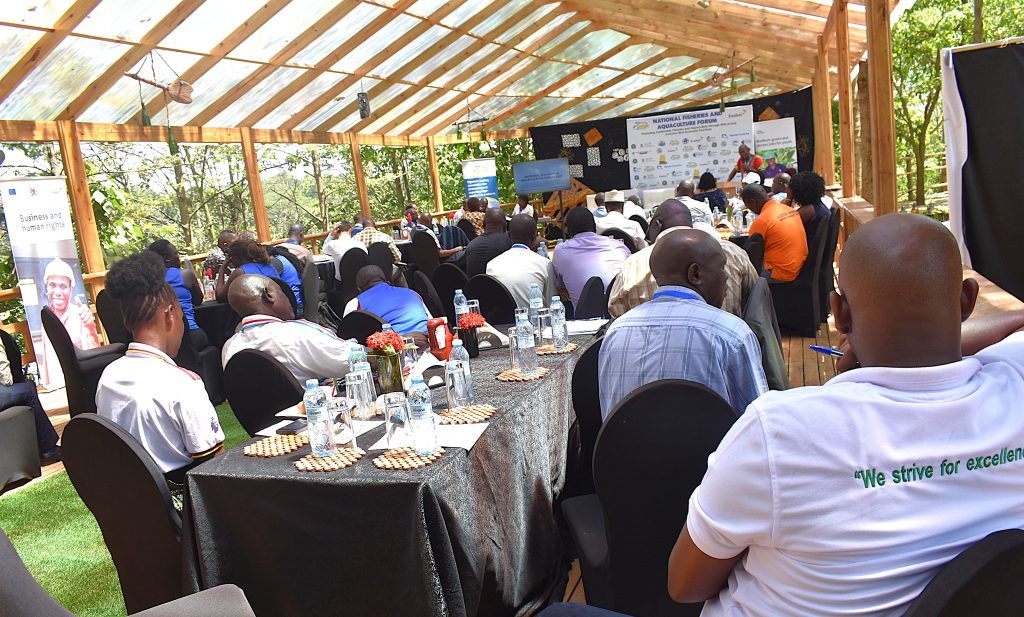
Participants emphasized the importance of strengthening value chain governance, scaling up innovations, and aligning initiatives with youth employment opportunities.
Delivering the keynote address, Mr. Richard Ogutu-Ohwayo, Coordinator at African Lakes Network and Independent Researcher, highlighted the urgent need to address “dirty fish” corruption, improve fisheries resource management through effective policies, and increase human resource capacity within the sector. Dr. Odongokara Konstantine, a Research and Policy Expert, emphasized domesticating international policies into Uganda’s aquaculture practices and building stakeholders’ capacity to access regional and global opportunities.
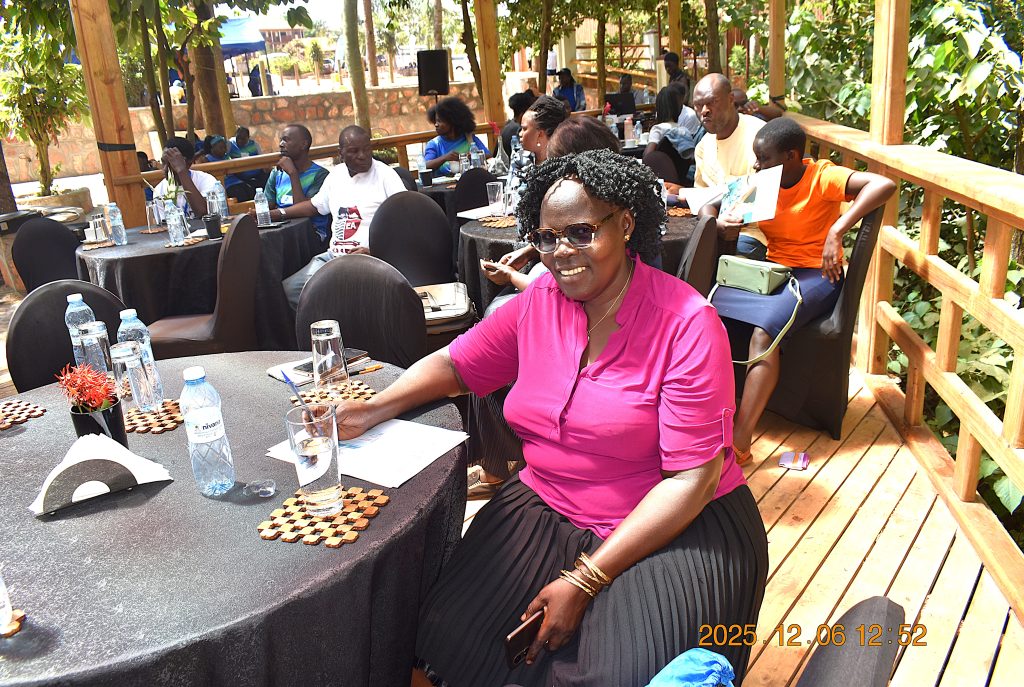
NutriFishPlus Project Participation in the Festival
The NutriFishPlus Project team, along with students from CoNAS participated in the 7th edition of the Jinja Fish Festival on 6th and 7th December 2025. Led by Ms. Nelly Badaru, Gender Expert on the Project and Ms. Juliet Ogubi Nafula, PhD student in the Department of Zoology, Entomology, and Fisheries Sciences at CoNAS, the team showcased products developed under the project and educated participants on the nutritional benefits of small pelagic fishes.
In its first phase, titled NutriFish, Makerere University researchers, led by Dr. Jackson Efitre, in collaboration with the National Fisheries Resources Research Institute (NaFIRRI – NARO), NUTREAL Limited, and McGill University, Canada, developed five high-value nutritious products, including baby food, sauce, maize meal, snacks, and seasoning, using Mukene (silverfish). The team also published a Mukene recipe book, containing 16 recipes rich in protein, calcium, zinc, and iron.
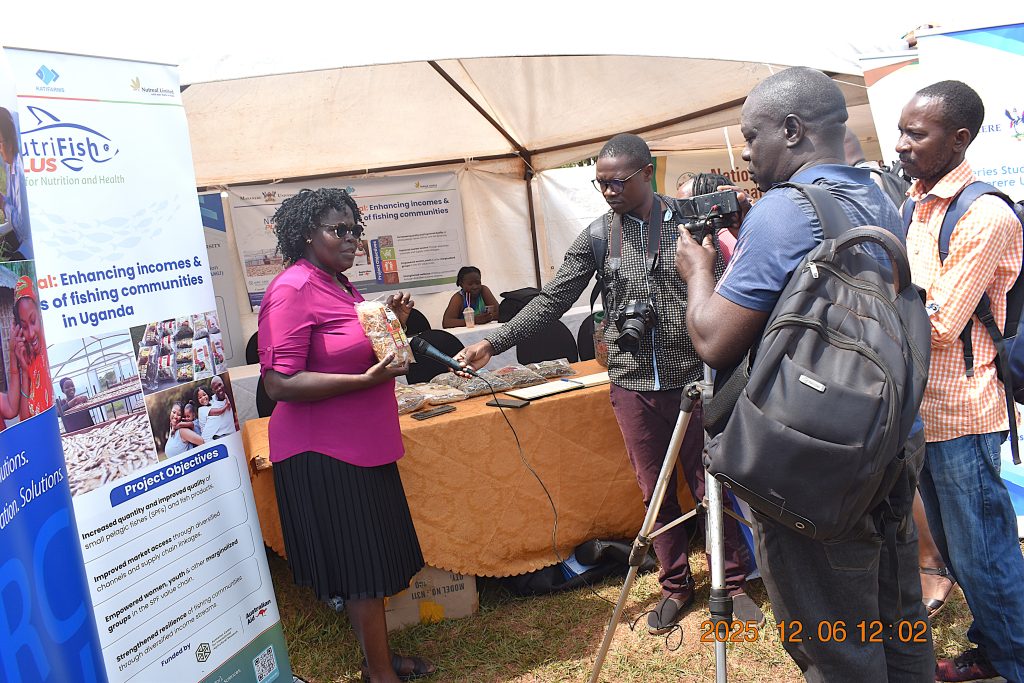
Through the project, fishers gained access to loans for purchasing boats and fish containers that improve hygiene and product quality. Two enterprise fishing groups, with over 70 boats, were established to ensure consistent supply and standards. Researchers also developed the eCAS system, an application for tracking fish catches. By September 2022, 8,960 catch records had been transmitted through the system, which is now used by over 200 stakeholders, including the Directorate of Fisheries Resources and the Fisheries Protection Unit, helping prevent overfishing.

Other achievements registered under the project included the development of solar tent driers – greenhouse-like structures that reduce the risk of contamination and provide clean and efficient storage and drying, especially during the wet season subsequently reducing post-harvest losses. The project conducted awareness training for 326 people (200 women) to reduce gender inequalities. As a result, domestic violence dropped by 30%, and the number of women in the fish value chain increased. The project also trained eight Graduate students, who have gained valuable skills and knowledge thus boosting critical human resource needs in the fisheries sector.
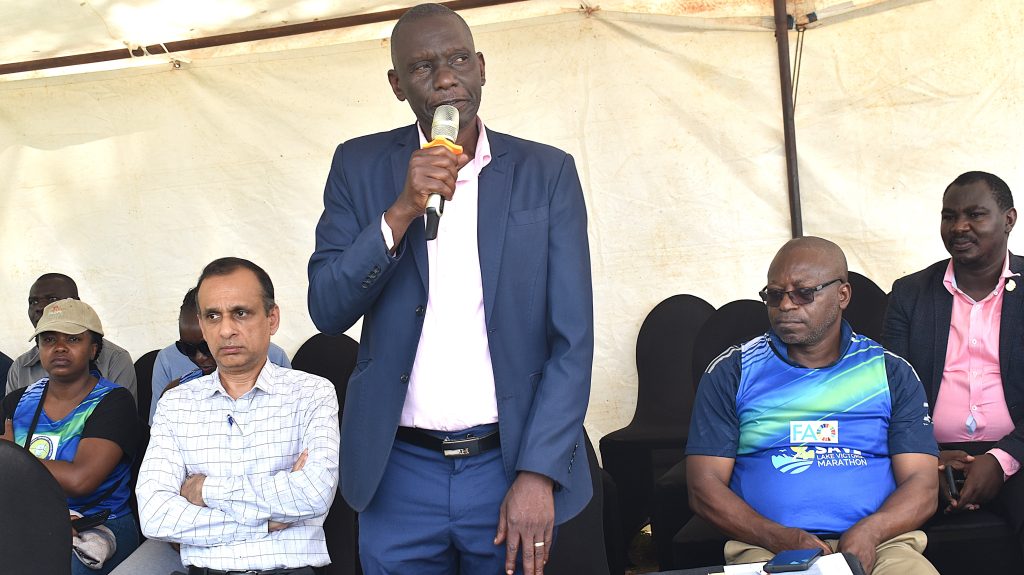
Other exhibitors at the festival included (NaFIRRI – NARO), FAO, INNOECOFOOD Project at Makerere University, the International University of East Africa, Busitema University, SEETA University (Science, Environment, Engineering, Technology, and Agriculture), Yalelo Uganda, and Preventive Care International, all showcasing emerging technologies and innovations in fisheries.
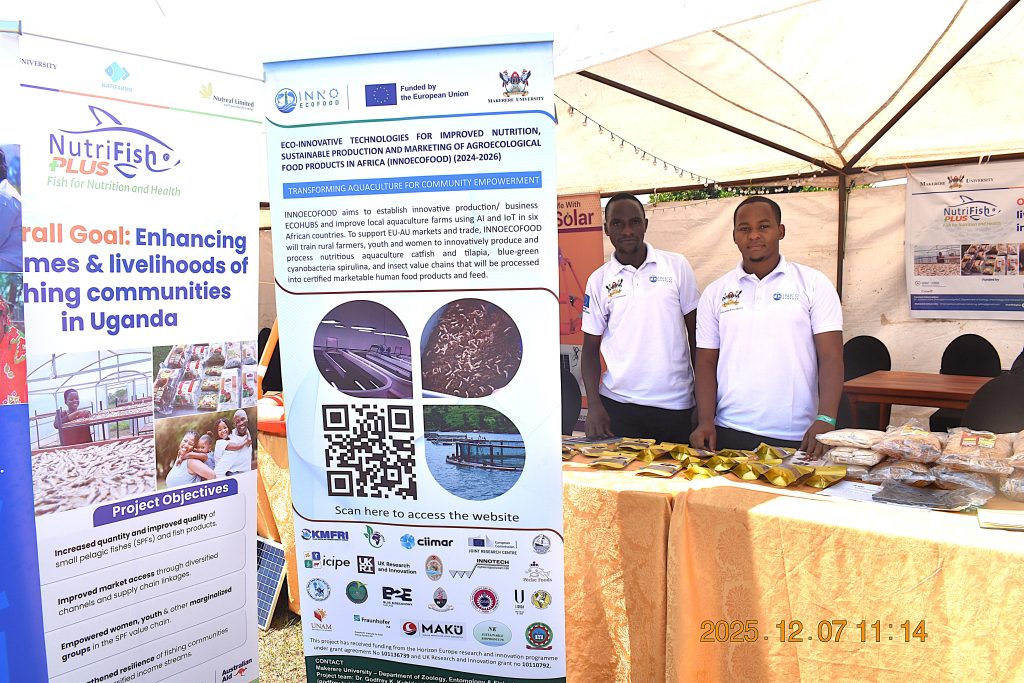
NutriFishPlus Phase II
Funded by the International Development Research Centre (IDRC) and the Australian Centre for International Agricultural Research (ACIAR) under CultiAF2, the NutriFishPlus Project aims to scale up Phase I activities to further enhance incomes and livelihoods of Uganda’s fishing communities.
Launched on 28th October 2025, the 32-month project will run until March 2028. Its objectives include:
- Scaling up sustainable fishing technologies, including solar tent driers and raised racks, to reach new communities.
- Strengthening market access and supply chain linkages for high-quality fish and fish-based products.
- Empowering women and vulnerable groups through diversified income-generating activities.

Implemented by the Department of Zoology, Entomology, and Fisheries Sciences at Makerere University, in collaboration with Nutreal Ltd and Kati Farms Ltd, the project is led by Dr. Jackson Efitre (Principal Investigator).
Expected outcomes include:
- Improved livelihoods and incomes for marginalized fishing groups, especially women and youth.
- Better health and nutrition through diversified, market-driven fish products.
- Sustainable fish processing and marketing models replicable across Uganda and the East African region.
- Enhanced participation of women and youth in decision-making and benefit-sharing within the Small Pelagic Fishes (SPFs) value chain.
- Strengthened community resilience and ecosystem health through participatory approaches.
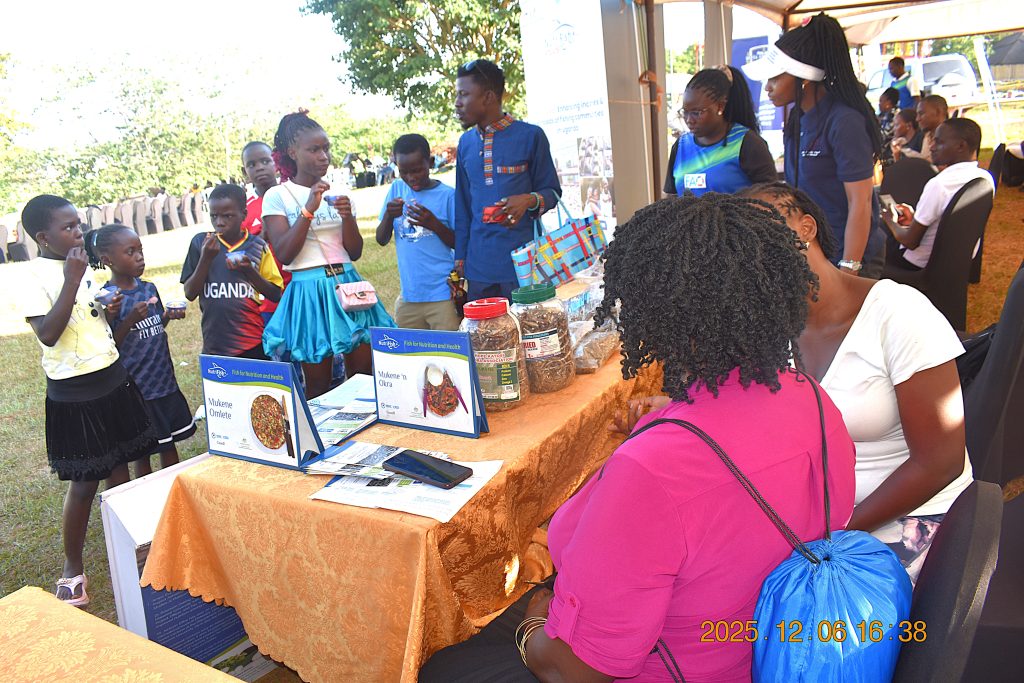
Project activities will be conducted at five landing sites around Lakes Victoria, Kyoga, and Albert: Katosi and Kikondo (Mukono and Buikwe districts), Bangaladesh and Kayago (Amolatar District), and Dei (Pakwach District).
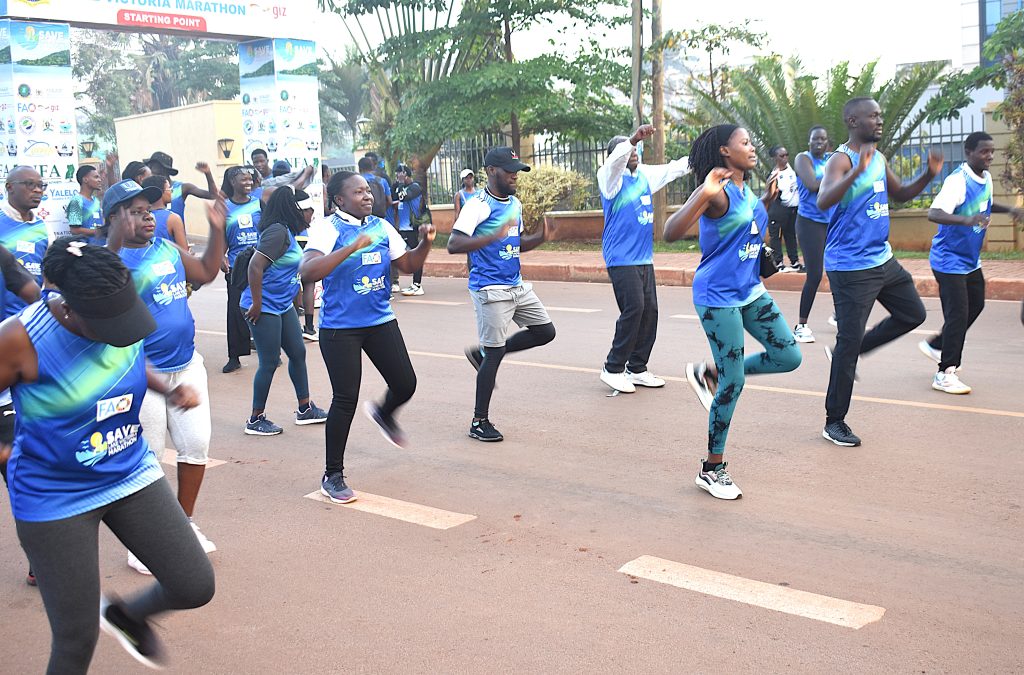
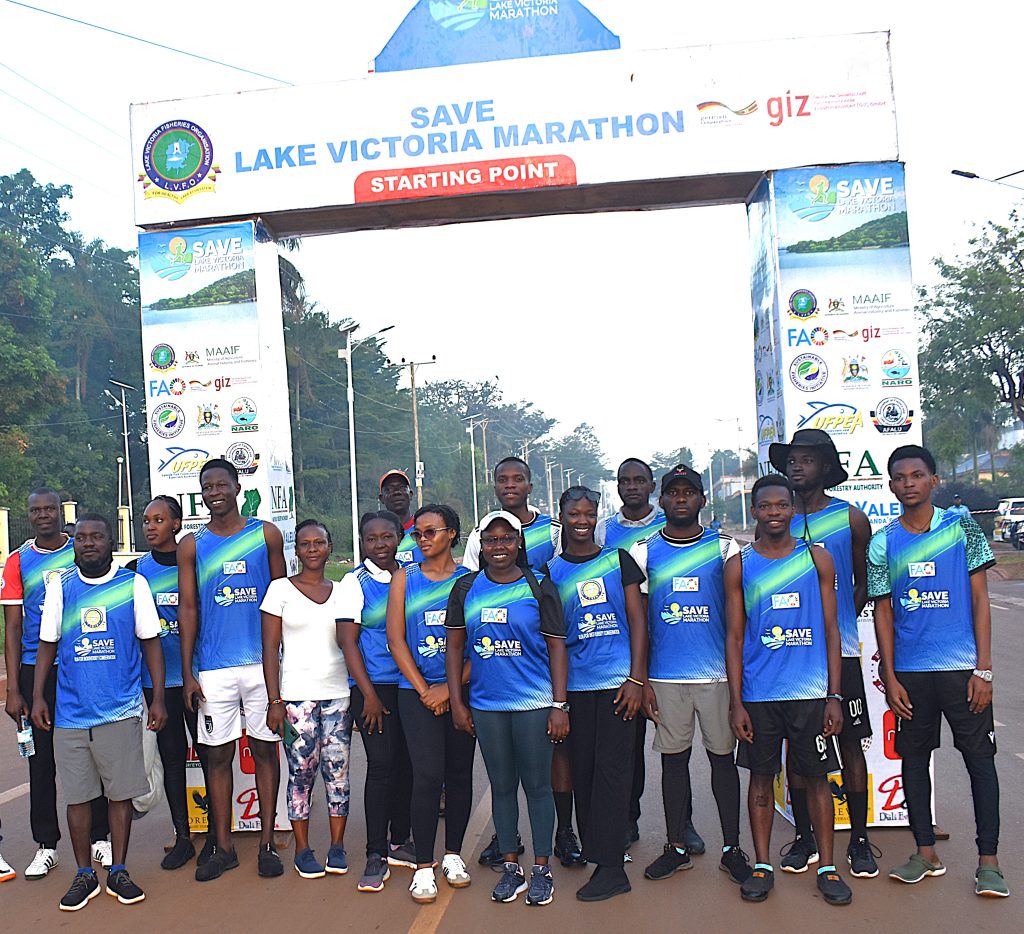
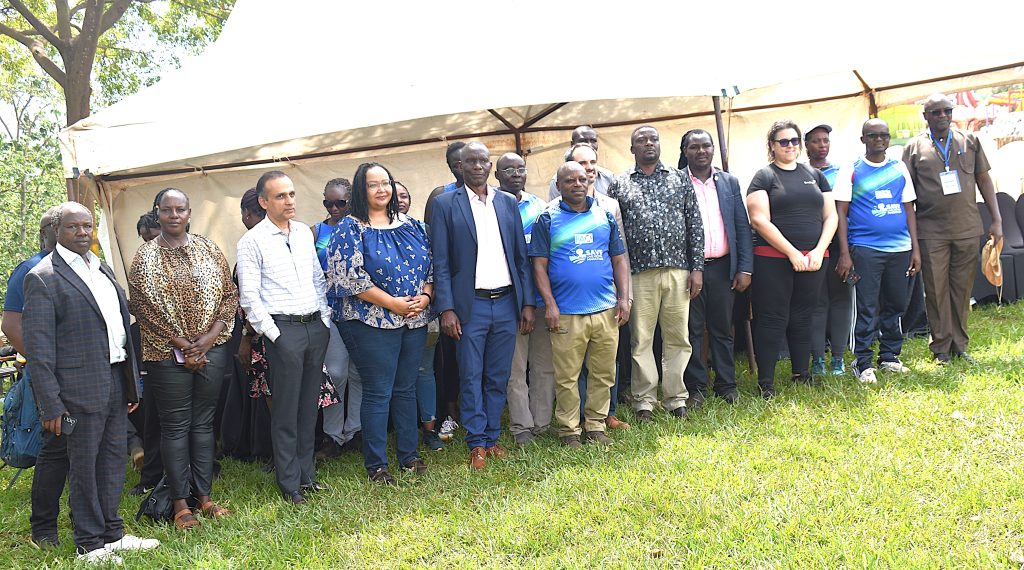
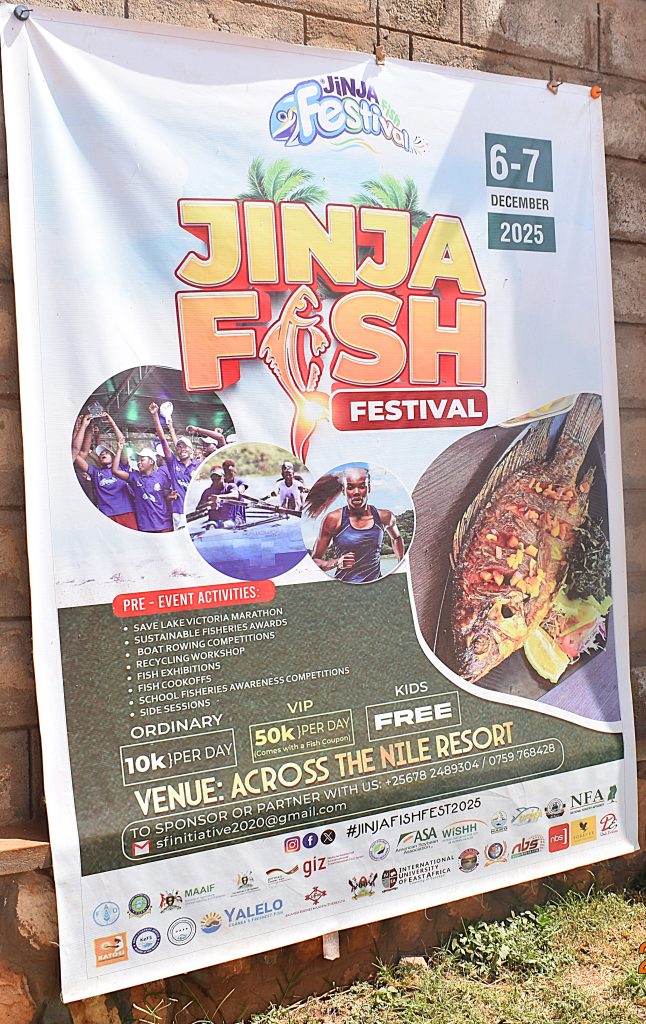
Natural Sciences
Mak-CoNAS Launches NutriFishPlus Project
Published
2 months agoon
October 30, 2025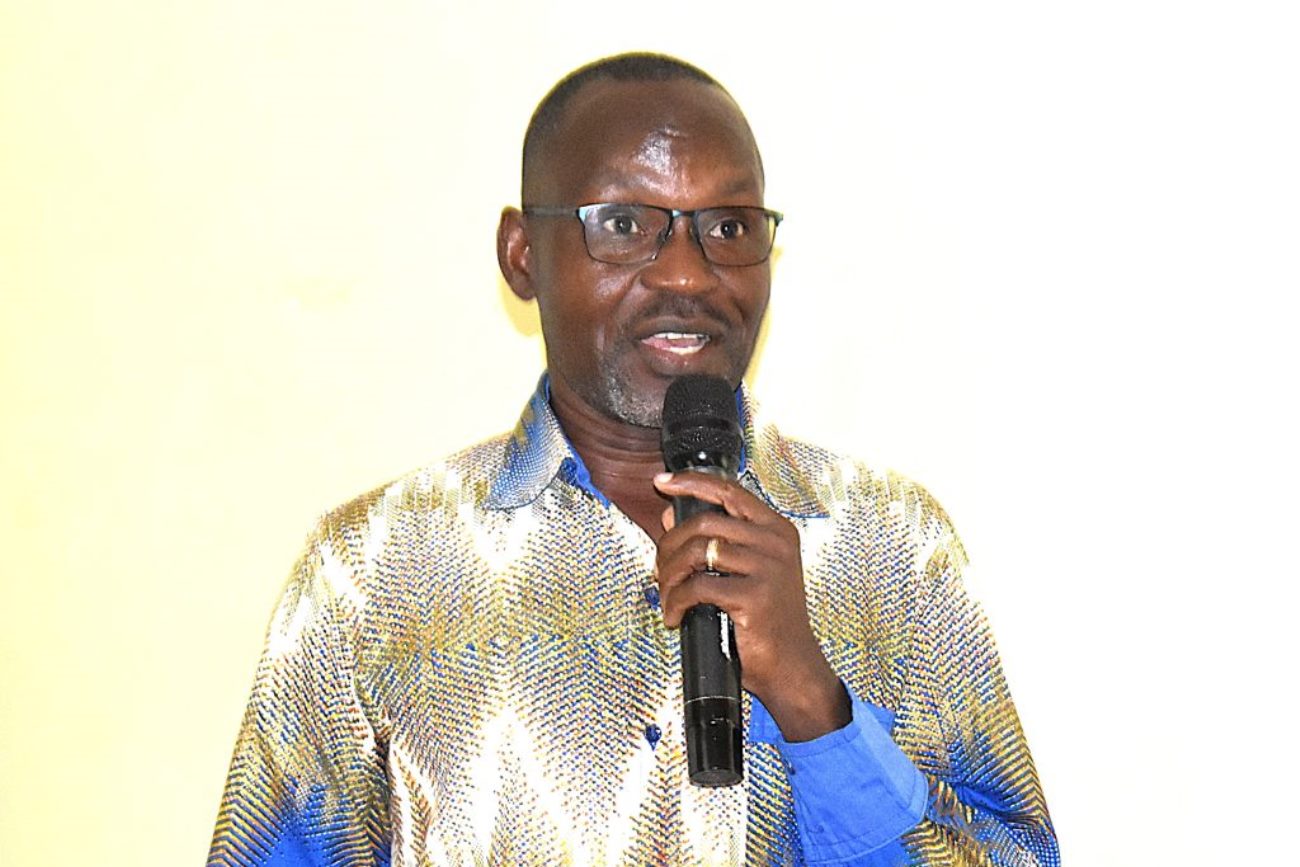
*****The project was officially launched on 28th October 2025, followed by planning meetings on 29th and 30th. It will be implemented at landing sites around Lakes Victoria, Kyoga and Albert.
Following the successful implementation of the NutriFish Project ( 2019-2023), Makerere University has been awarded a new grant worth about UGX2 Billion to expand activities and deepen community impact through the NutriFishPlus Project.
Funded by the International Development Research Centre (IDRC) and the Australian Centre for International Agricultural Research (ACIAR) under the Cultivate Africa’s Future Fund Phase II (CultiAF2), the NutriFishPlus Project seeks to enhance the incomes and livelihoods of fishing communities in Uganda.
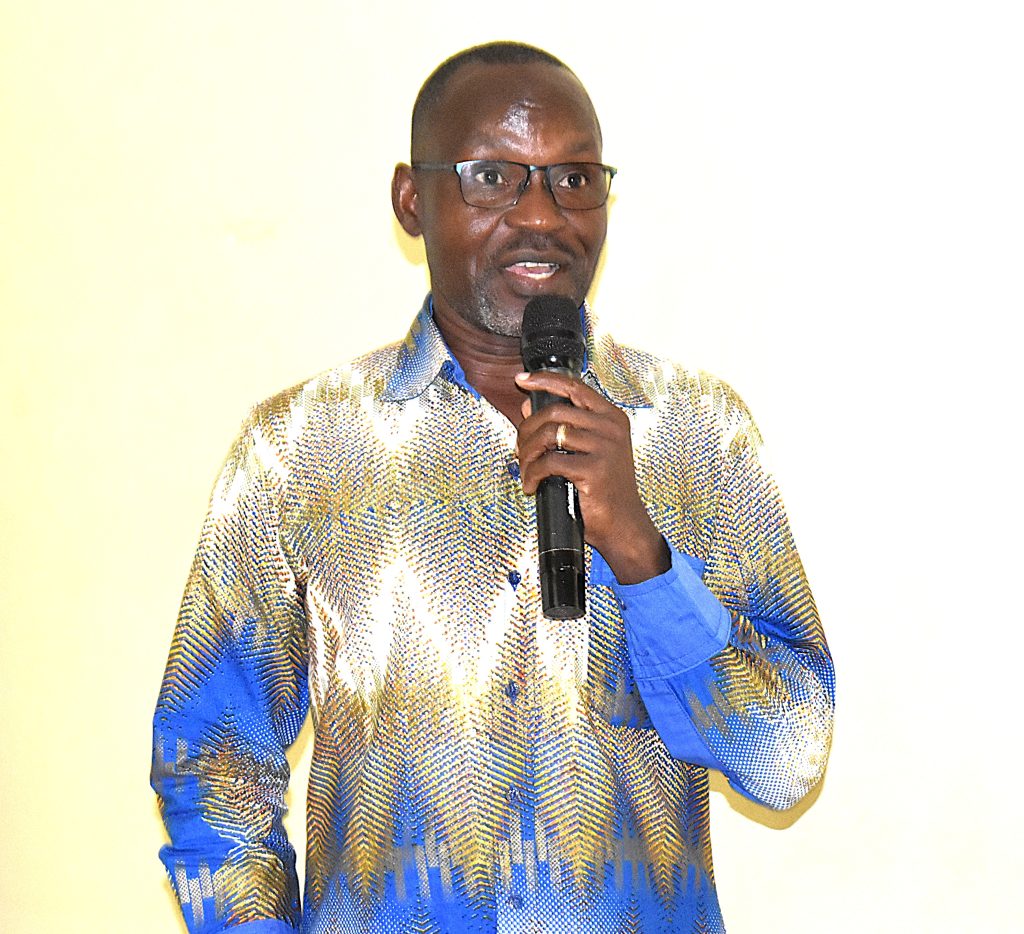
The project was officially launched on 28th October 2025 by the Ag. Deputy Vice Chancellor (Finance and Administration) at Makerere University, Prof. Winston Tumps Ireeta. Building on the achievements of phase one, NutriFishPlus will focus on:
- Scaling up the use of improved and sustainable fishing technologies, including solar tent driers and raised racks, to reach new communities across Uganda.
- Enhancing market access and strengthening supply chain linkages for high-quality fish and fish-based products.
- Empowering women and other vulnerable groups and strengthening community resilience through diversified income-generating activities.
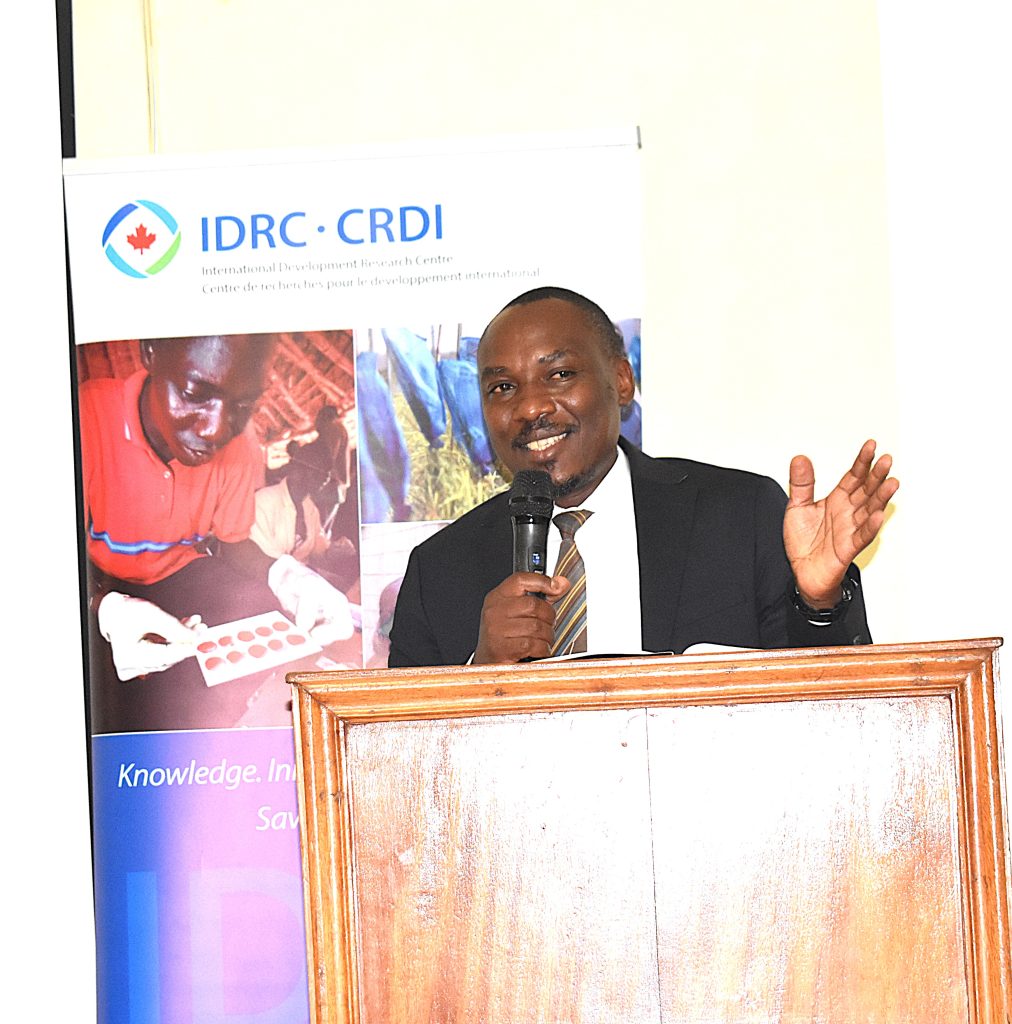
The project is expected to deliver the following outcomes:
- Improved incomes and livelihoods for the marginalized fishing groups, particularly women and youth.
- Better health and nutrition outcomes through the development of diversified, market-embedded fish products.
- Establishment of sustainable fish processing and marketing models that can be replicated across Uganda and the East African region.
- Improved participation of women and youth in decision-making and benefit-sharing within the Small Pelagic Fishes (SPFs) value chain.
- Enhanced socioeconomic conditions and ecosystem health through participatory and scalable approaches.
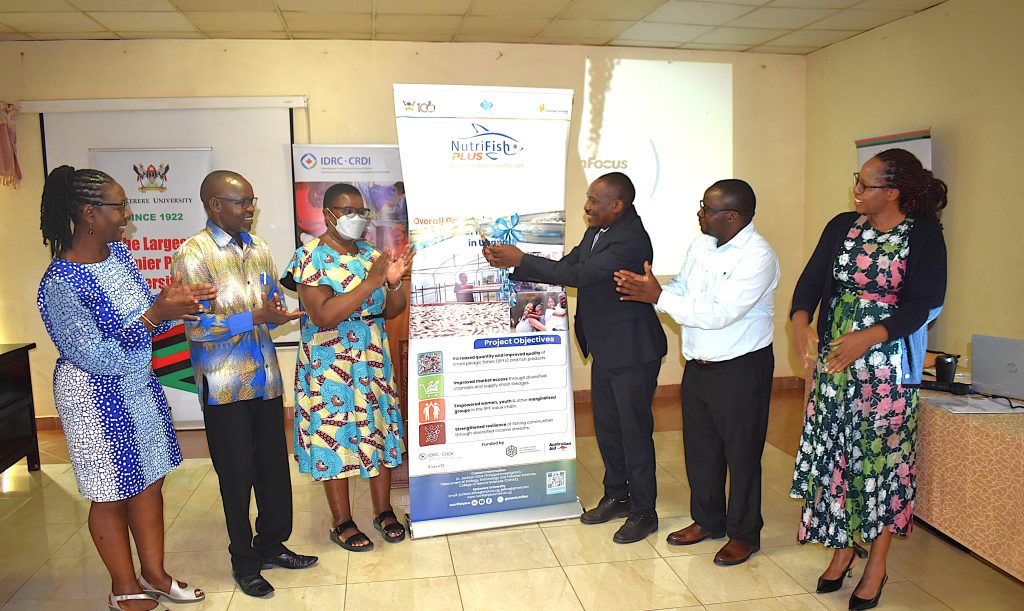
The project will run from September 2025 to March 2028 and will be implemented by the Department of Zoology, Entomology, and Fisheries Sciences at Makerere University, in collaboration with two private companies (Nutreal Ltd and Kati Farms Ltd) under a public-private partnership. Project activities will be carried out at five landing sites around Lakes Victoria, Kyoga and Albert. These include Katosi and Kikondo landing sites in Mukono and Buikwe districts respectively, Bangaladesh and Kayago landing sites in Amolatar District, and Dei landing site in Pakwach District. The project will be coordinated by Dr Jackson Efitre, Senior Lecturer at the Department of Zoology, Entomology, and Fisheries Sciences at Makerere.
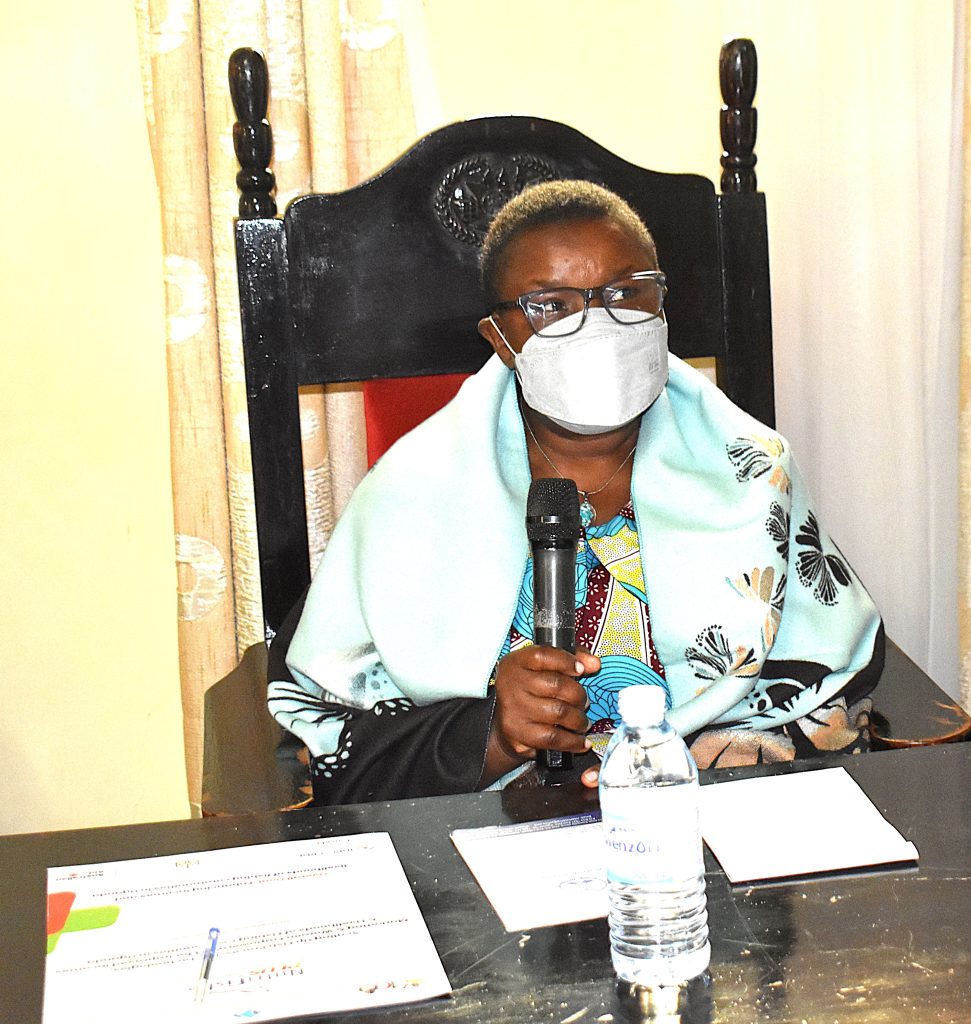
Inception and planning meetings
The NutriFishPlus Project team convened a three-day stakeholder engagement from 28th to 30th October 2025 to officially launch the project and collaboratively develop an implementation plan.
The workshop brought together a wide range of participants, including government representatives, researchers, private sector actors, and development partners. The primary objective was to foster a shared understanding of the project’s overarching goals, and design strategic pathways for achieving sustainable scaling and impact.
Discussions focused on deepening understanding of the scaling journey, and the interconnections among the different work packages and their respective pathways to scale. Participants explored how adaptive and transformative approaches can be integrated into the project’s dynamic monitoring, evaluation and learning (MEL) framework.
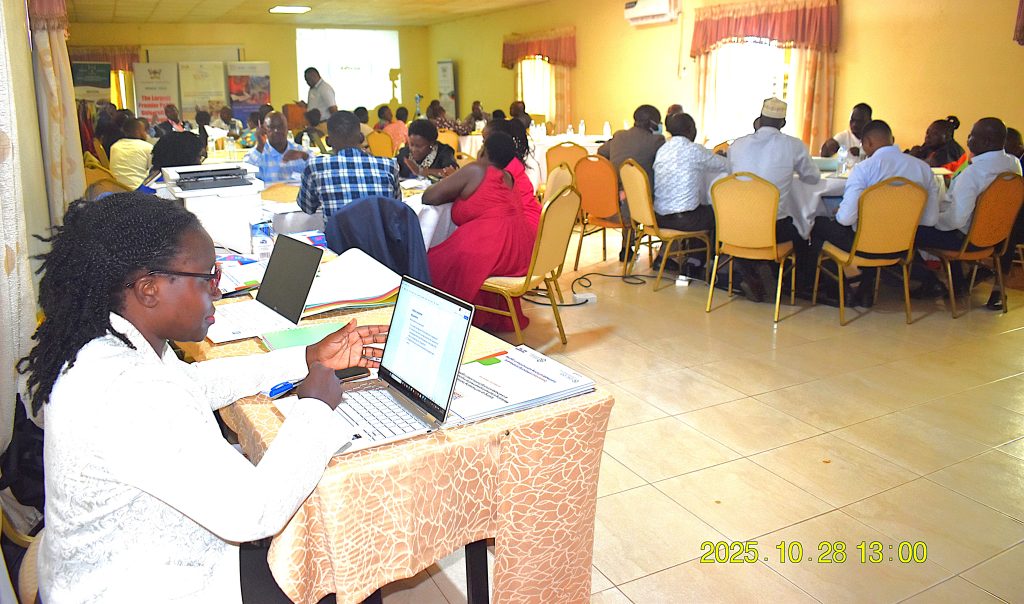
The team also reviewed the existing outputs and outcomes to identify key evidence that can inform adaptive monitoring. Through collaborative dialogue, stakeholders worked to identify appropriate indicators and progress markers that reflect the project’s adaptive learning and scaling dimensions, ensuring alignment with both the project objectives and national development priorities.
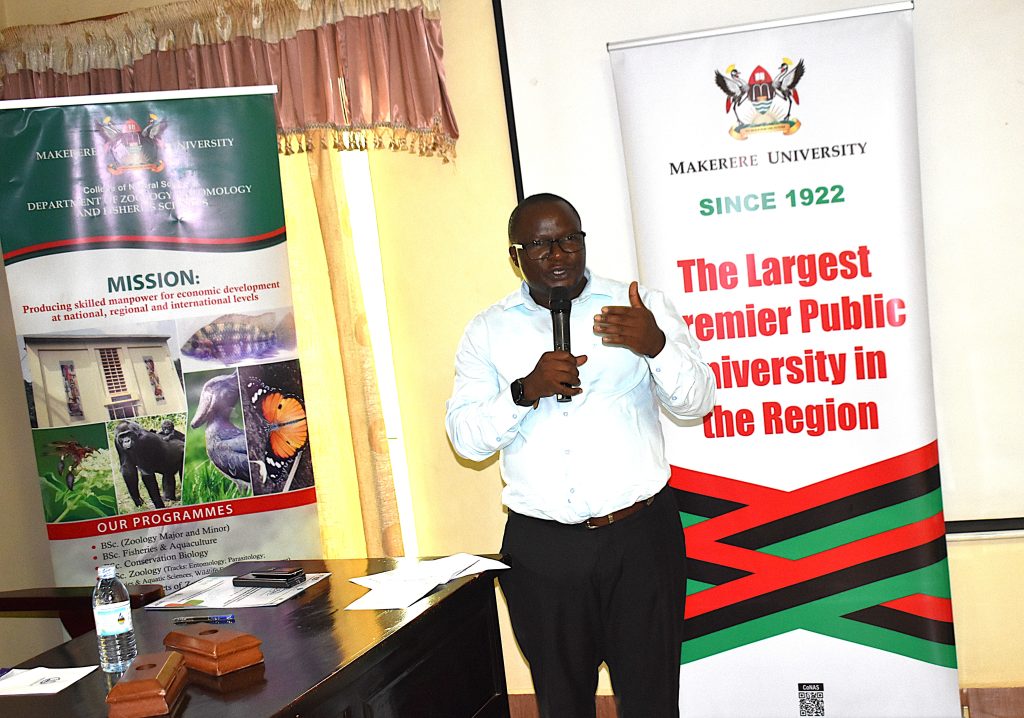
A major outcome of the workshop was the joint development of a detailed implementation plan for the project’s four interlinked work packages, which aim to:
- Enhance nutrition and health outcomes among vulnerable groups through the diversification of fish products and market innovations;
- Promote alternative and resilient livelihoods within small-scale fisheries and related value chains;
- Advance inclusivity and participation of marginalized groups, particularly women and youth in the Small Pelagic Fishes value chain through policy reform, advocacy, and enforcement; and
- Strengthen fish processing technologies and post-harvest management practices to improve food safety, quality, and value addition.
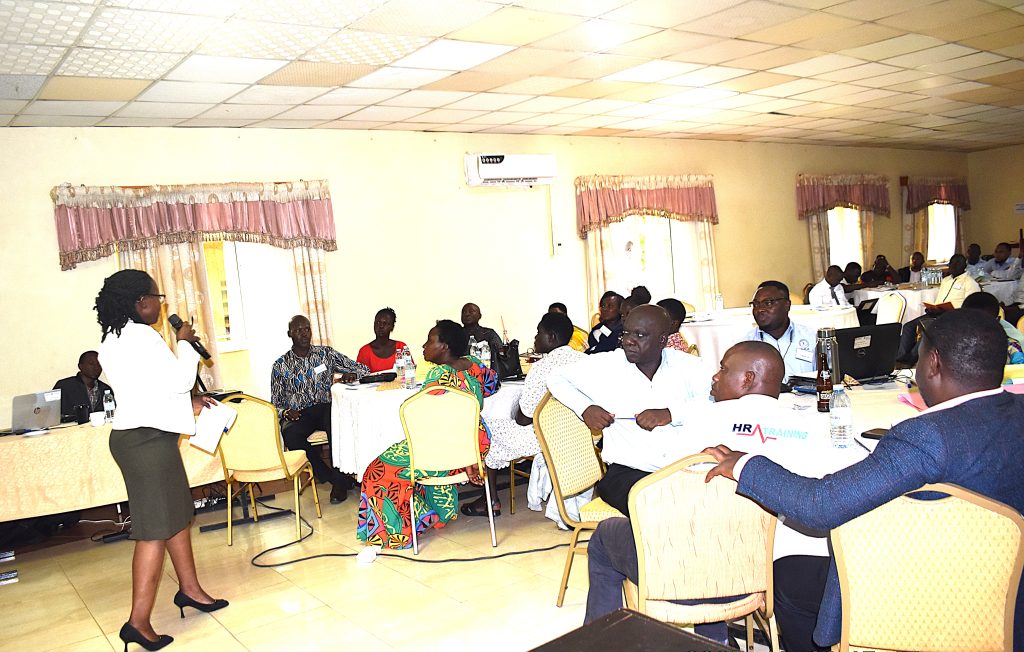
Overall, the inception workshop provided a strong foundation for coordinated implementation of the project, and established a clear roadmap for achieving the NutriFishPlus vision of improving nutrition, livelihoods, and sustainability through fisheries-based innovations.
Remarks by the University officials and development partners
Addressing the participants, the Guest of Honour, Prof. Winston Tumps Ireeta, Deputy Vice Chancellor in charge of Finance and Administration at Makerere University, commended the project team for the achievement. He also expressed gratitude to the project funders – the International Development Research Centre (IDRC) and the Australian Centre for International Agricultural Research (ACIAR) – for their steadfast support and dedication to improving the livelihoods of fishing communities in Uganda. “The NutriFishPlus project highlights Makerere University’s commitment to being a research-driven institution,” he said. “It also strengthens the University’s leadership in translating research into tangible, real-world outcomes that drive sustainable development and enhance public health.” On behalf of Makerere University Management, Prof. Ireeta assured continued support for the successful implementation of the project.
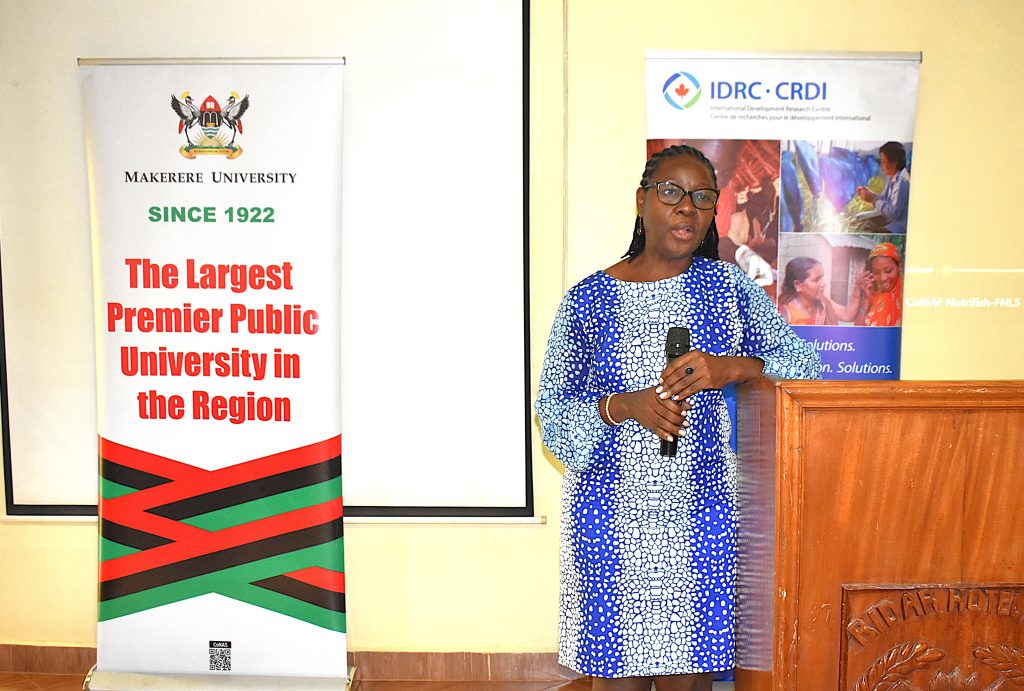
Dr. Edidah Lubega Ampaire, Senior Programme Specialist at the International Development Research Centre (IDRC), congratulated the project team upon securing the second grant. She emphasized that the IDRC is committed to supporting applied research that delivers tangible benefits to communities, noting that the team had demonstrated this through their success with the NutriFish project. “The IDRC invests in research that has the potential to transform livelihoods,” Dr. Ampaire said. “We look forward to seeing how the NutriFishPlus Project will build upon the achievements of the previous phase to scale up impact beyond the pilot phase. It is equally important that the project contributes to fostering meaningful policy reforms and strengthening enforcement mechanisms to ensure long-term, sustainable outcomes.”
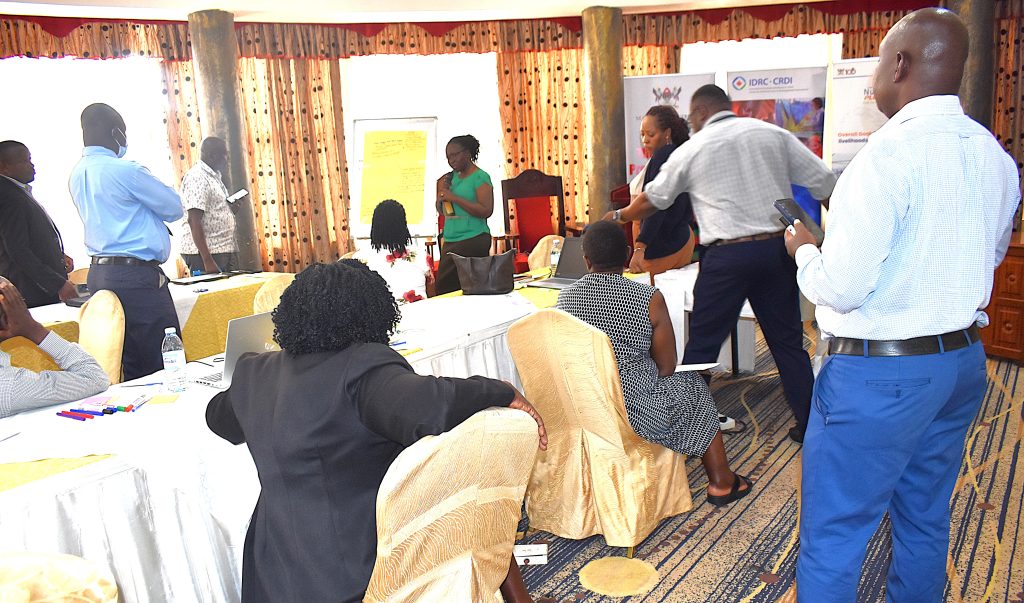
During the session, Ms. Dena Lomofsky, an experienced researcher and MEL expert, guided participants through the key components of scaling science. Her presentation explored the theoretical foundations, guiding principles, and strategic approaches required to transform research findings into scalable and sustainable solutions.
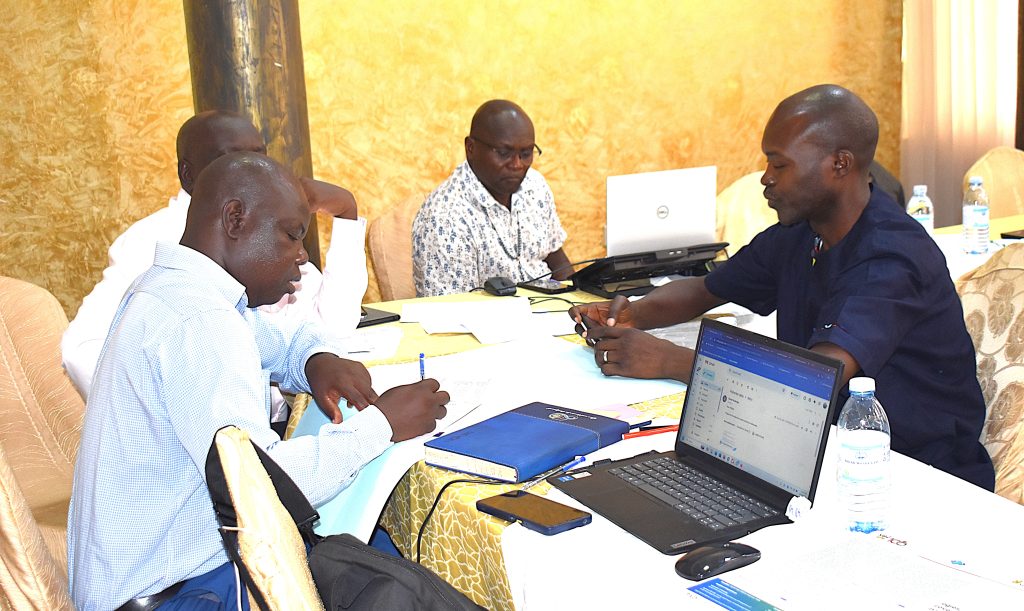
Briefing participants on their activities, Dr. Dorothy Nakimbugwe from Nutreal Ltd, a private company collaborating with the NutriFishPlus Project, underscored the crucial role of private sector involvement in research initiatives. She emphasized that engaging private enterprises not only enhances the practical application of research outcomes but also plays a pivotal role in scaling innovations and maximizing their impact.
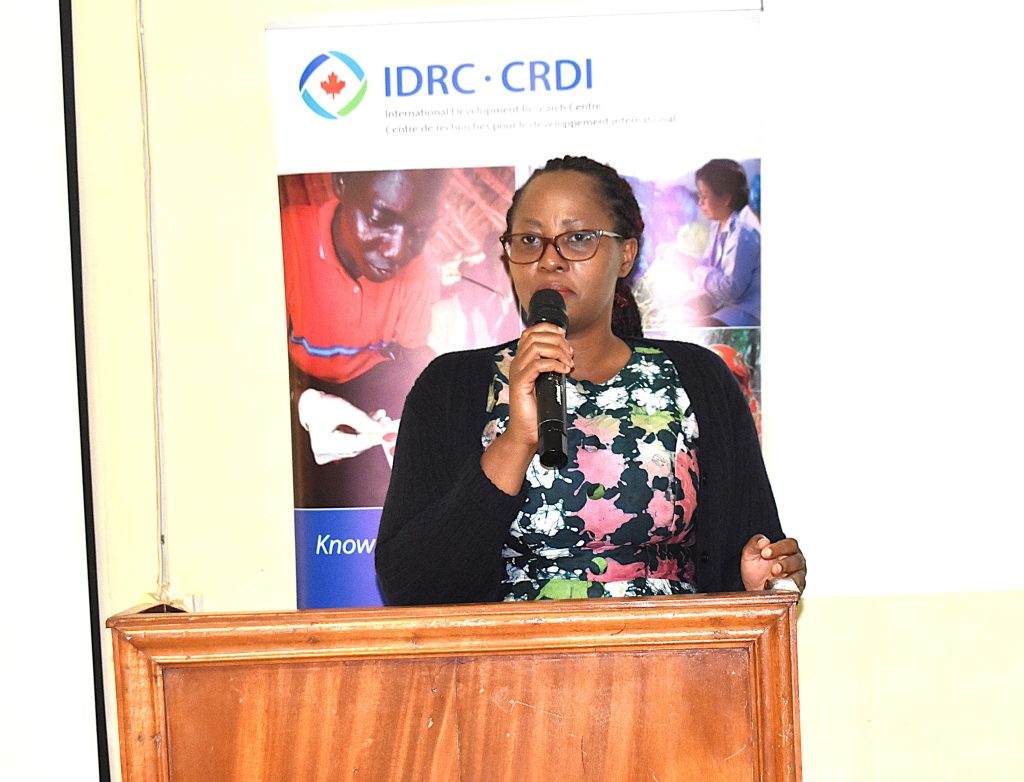
Ms. Lovin Kobusingye of Kati Farms Ltd expressed gratitude to the project team and funders for the initiative. “At Kati Farms, we are truly honored to be part of this journey. Our passion has always been to transform Uganda’s fisheries sector through value addition, innovation, and inclusive growth. The NutriFishPlus Project aligns perfectly with this mission, as it aims to improve the incomes and livelihoods of fishing communities through diverse interventions. As Kati Farms, our commitment is to ensure that the products developed under this project meet the highest quality standards and reach both local and international markets. Together, as partners, let us move forward with a shared vision, to make NutriFishPlus not just a research project, but a transformative movement that uplifts fishing communities, enhances nutrition, and promotes gender equality within and beyond our borders.”
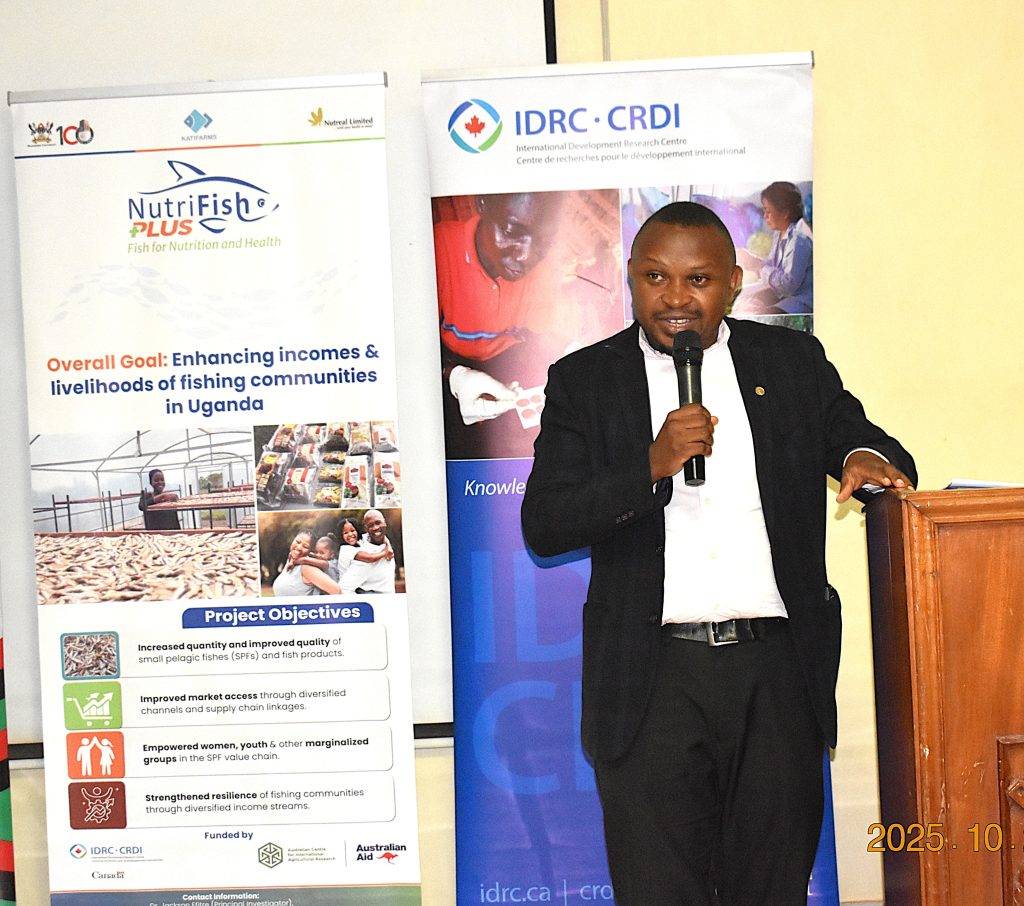
Mr. Isaac Kirabira from the Ministry of Agriculture, Animal Industry, and Fisheries expressed the Ministry’s commitment to supporting the project, emphasizing that empowering women, youth, and other vulnerable groups is essential not only for improving livelihoods but also for restoring dignity.
In his remarks, Dr. Godfrey Kawooya Kubiriza, Head of the Department of Zoology, Entomology, and Fisheries Sciences at Makerere University, equally appreciated the project team and the funders. “Our Department is proud to contribute to the NutriFishPlus Project. Initiatives of this nature provide a valuable platform for translating our research into practical solutions that reach communities, thereby creating meaningful and tangible impact.”
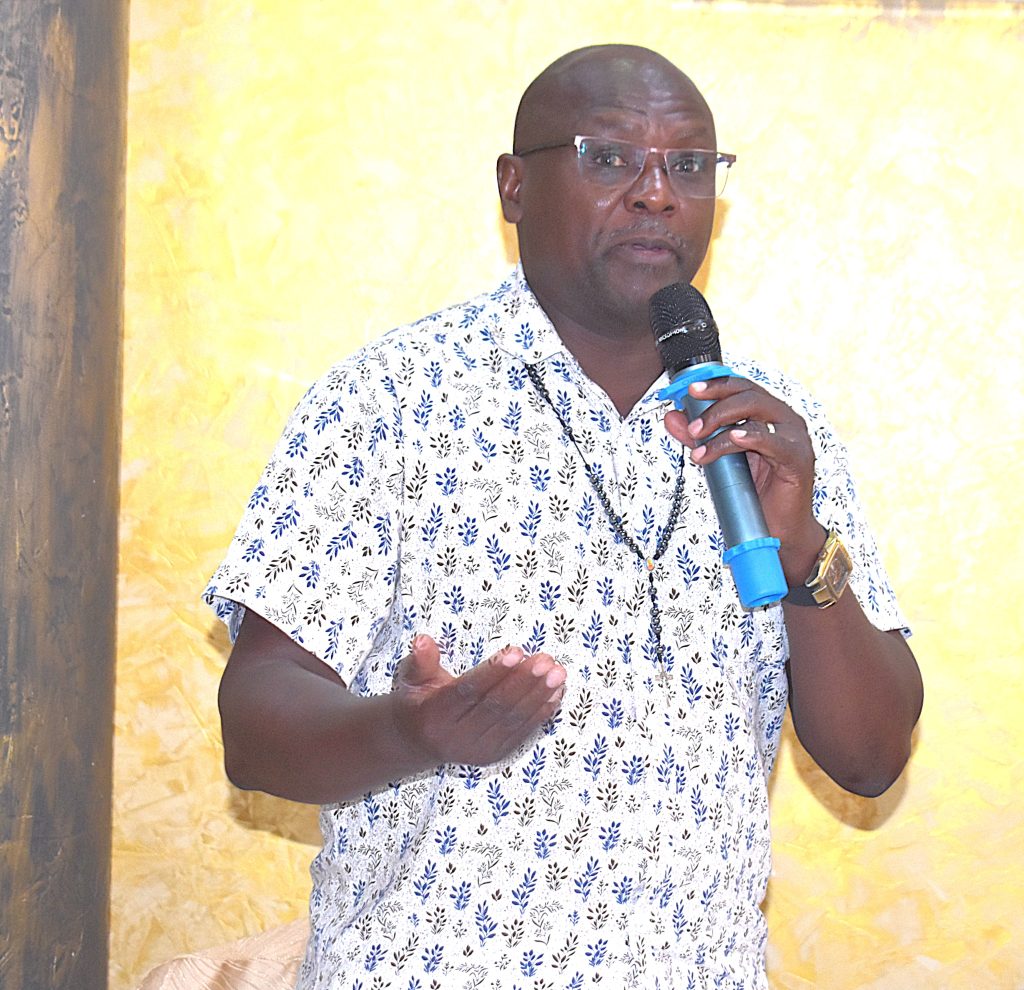
Achievements registered during Phase One
The achievements included:
- Establishing group savings schemes to improve access to capital by women and youth;
- Piloting solar tent dryers for processing silver fish (mukene), resulting in doubling of women’s incomes and tripling of the shelf-life to almost five months;
- Developing and test-marketing certified, nutrient-enriched fish products, including baby food, sauce and fortified maize meal;
- Conducting comprehensive social and behavioural change interventions, leading to increased women’s participation in profitable ventures and 30% reduction in domestic violence in intervention areas.
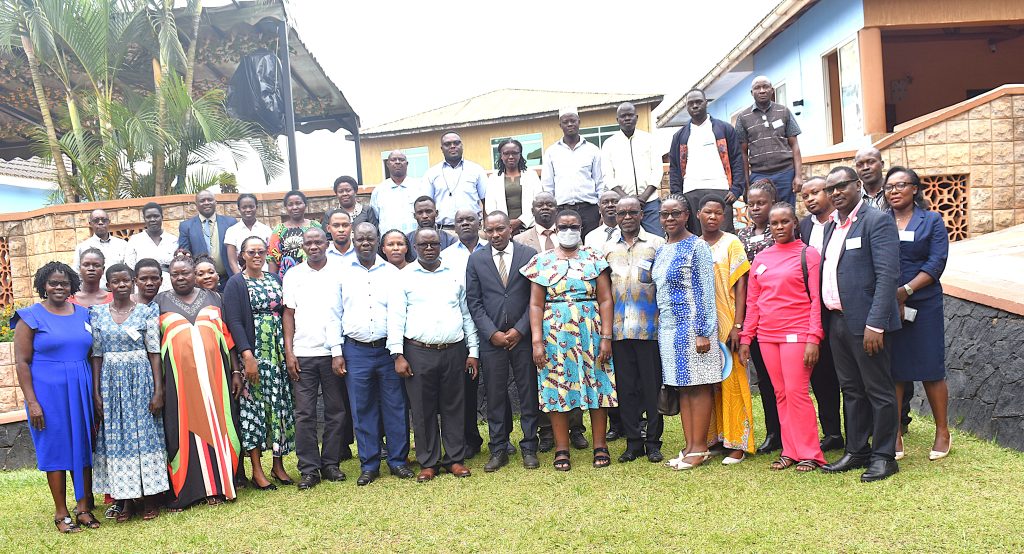
Link to the workshop pictorial: https://drive.google.com/drive/folders/1Wwd9kSsKpd6aZ6YrFL1uVveh2BSG36cV?usp=sharing
Natural Sciences
Mak-CoNAS Wins CAD 0.8 Million Grant to Scale-up Fish Processing Technologies & Empower Women in Uganda
Published
2 months agoon
October 27, 2025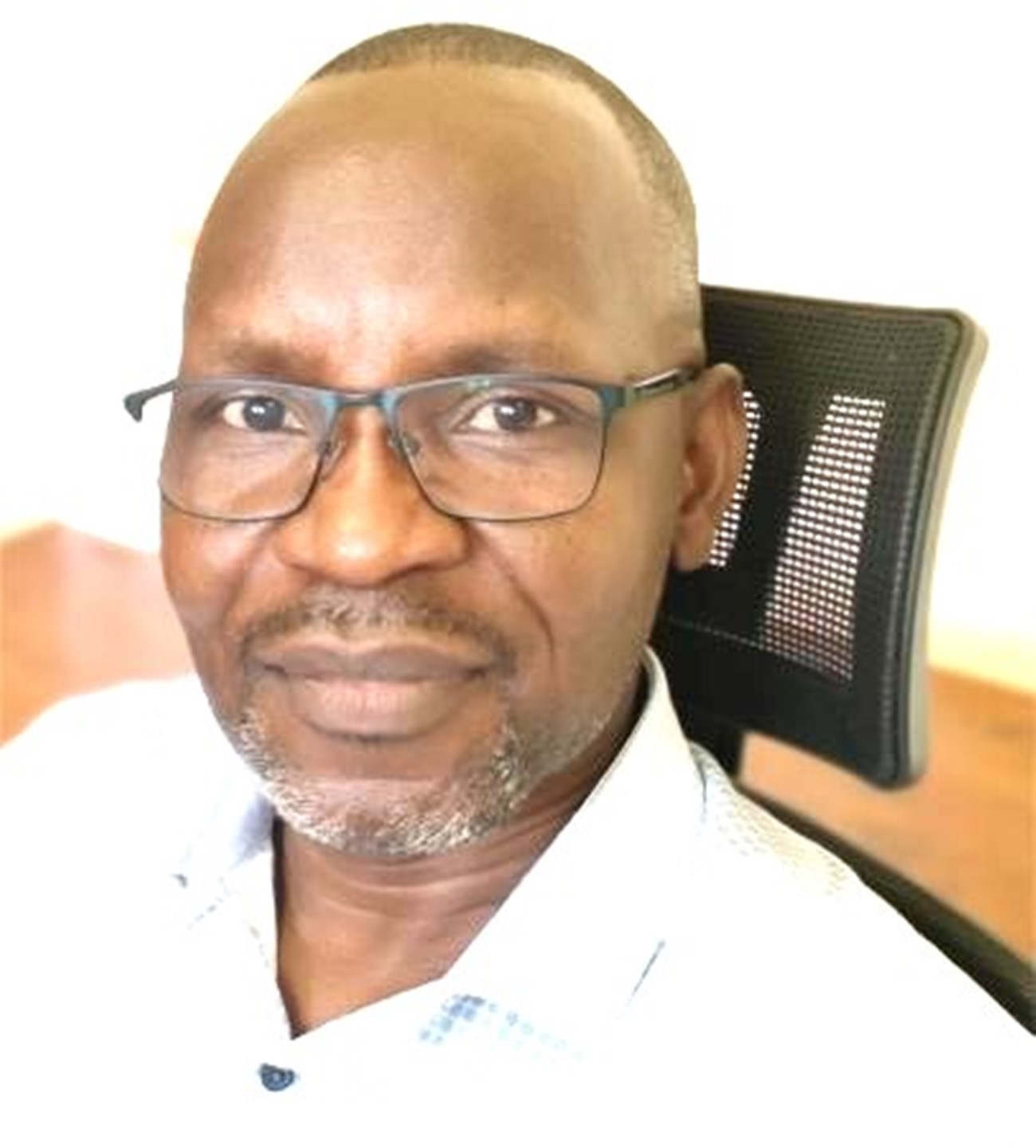
The College of Natural Sciences (CoNAS) at Makerere University has been awarded a highly competitive research grant worth CAD 0.8 million to implement the “NutriFishPLUS” project, which aims to scale up innovative fish processing technologies, improve market access, and empower women in Uganda’s fishing communities to boost incomes and livelihoods.
This project builds on the significant achievements of the previous ground-breaking NutriFish project (2019–2023), funded by the International Development Research Centre (IDRC) and the Australian Centre for International Agricultural Research (ACIAR) through the Cultivate Africa’s Future Fund Phase (CultiAF2). The achievements included: 1) establishing group savings schemes to improve access to capital by women and youth; 2) piloting solar tent dryers for processing silverfish (mukene), resulting in doubling of women’s incomes and tripling of the shelf-life to almost five months; 3) developing and test-marketing certified, nutrient enriched fish products, including baby food, sauce and fortified maize meal; 4) conducting comprehensive social and behavioural change interventions, leading to increased women’s participation in profitable ventures and 30% reduction in domestic violence in intervention areas. Despite these achievements, gaps still remain with regard to increasing production of high-quality Small Pelagic Fishes (SPFs) through adoption of solar tent dryers and raised drying racks; enhancing capacity of men, women and the youth in processing, packaging, branding and marketing; improving access to capital and lucrative markets for fish and fish products; and empowering women, youth and other marginalized groups in the small fish value chain; and strengthening resilience of fishing communities through diversified income streams.
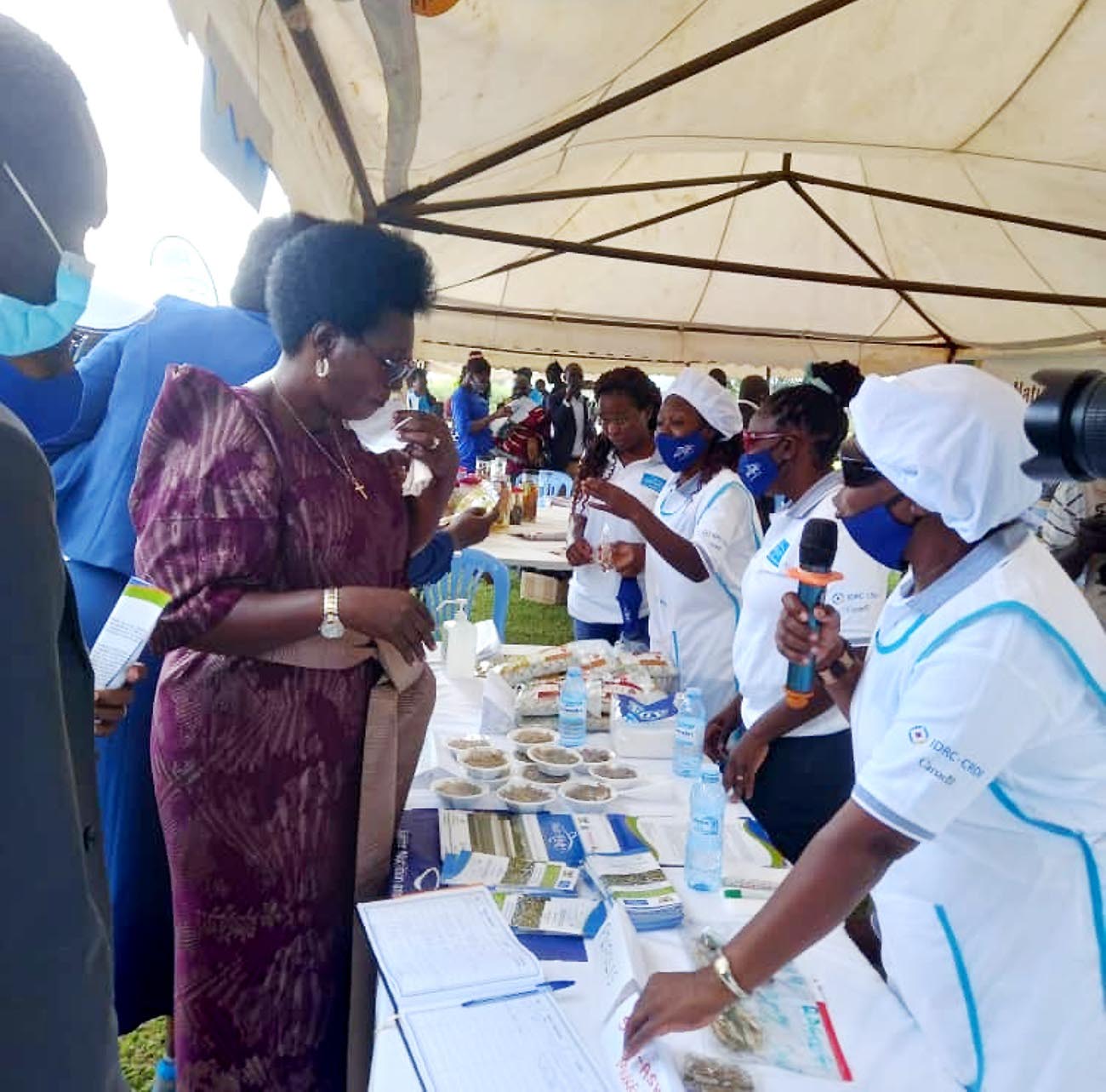
NutriFishPLUS will be implemented by the Department of Zoology, Entomology and Fisheries Sciences, CoNAS, in collaboration with two private companies (Kati Farms and Nutreal) through a public-private partnership. The Principal Investigator is Dr. Jackson Efitre and his team will focus on scaling-up the use of improved, sustainable fish processing technologies such as the solar Tent dryers and raised racks to new communities across Uganda; enhancing market access and supply chain linkages for high-quality fish and fish products; as well as deepening women’s empowerment and strengthening the resilience of fishing communities through diversified income streams. The project is expected to run for September 2025- March 2028. The expected outcomes include: enhanced incomes and livelihoods for marginalized fishing groups, particularly women and youth; improved health and nutrition for vulnerable groups through diversification of fish products that are embedded in the market with strong supply chain linkages; sustainable fish processing and marketing models that can be scaled across Uganda and the East African region; improved women and youth participation in decision making and control of benefits in the SPF value chains; and improved socioeconomic conditions and ecosystem health through participatory, scalable approaches.
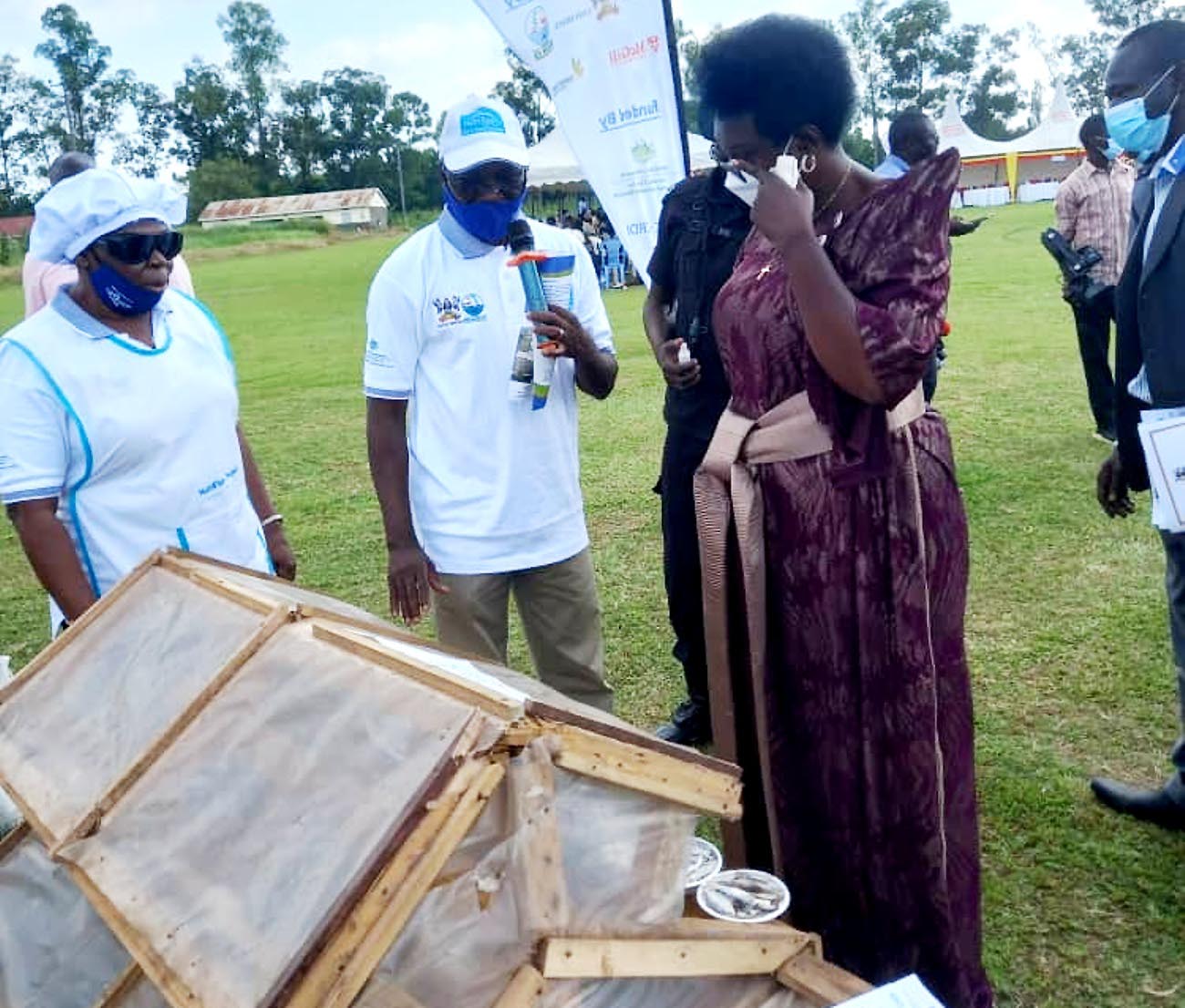
“Winning this competitive grant is an incredible opportunity for the team to solidify the achievements of the first phase as the funding enables us to move beyond research to embed these nutritional and technological solutions into the livelihoods of local communities,” said Dr. Efitre. “I am privileged to lead this impactful work on behalf of Makerere University. Scaling up these tested, climate-responsive technologies as well as empowering the women and youth will secure better nutrition and more sustainable livelihoods across fishing communities in Uganda.”
The project is set to be launched tomorrow, Tuesday, 28th October 2025 by the Acting Deputy Vice Chancellor, Finance and Administration and Principal, CoNAS, Prof. Winston Tumps Ireeta.
Please see below for details on the project.
Details on the previous project: https://news.mak.ac.ug/2023/03/nutrifish-project-registers-significant-achievements/
Trending
-

 General2 weeks ago
General2 weeks agoCall For Expression of Interest: WEE-DiFine Research Initiative
-
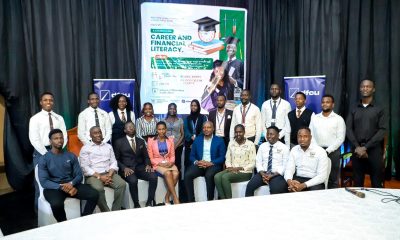
 General2 weeks ago
General2 weeks agoFrom Campus to Career: Makerere Advancement Office, 91st Guild and the DFCU Foundation Equip Students with Financial and Employability Skills
-
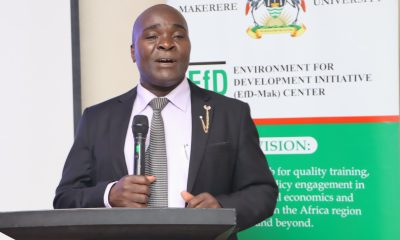
 Business & Management2 weeks ago
Business & Management2 weeks agoEfD, MDAs & Private Sector Strategize on Scaling up the Adoption of Climate Smart Agriculture in Uganda
-

 Humanities & Social Sciences6 days ago
Humanities & Social Sciences6 days agoCollege of Humanities and Social Sciences Launches Five Groundbreaking Publications
-

 Natural Sciences2 weeks ago
Natural Sciences2 weeks agoJinja Fish Festival: Mak Recognized for its outstanding contribution to the Development of the Fisheries Sector
